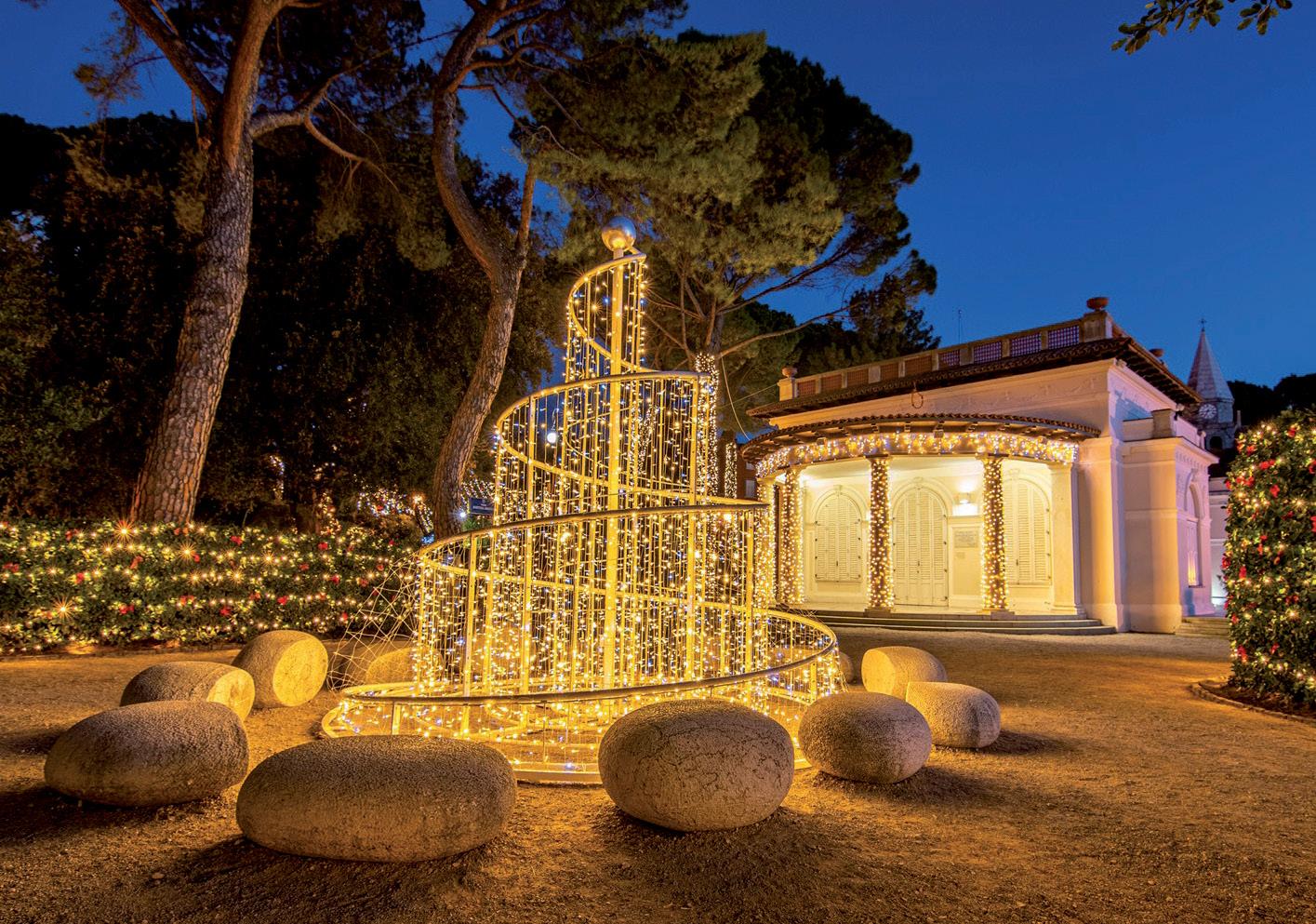














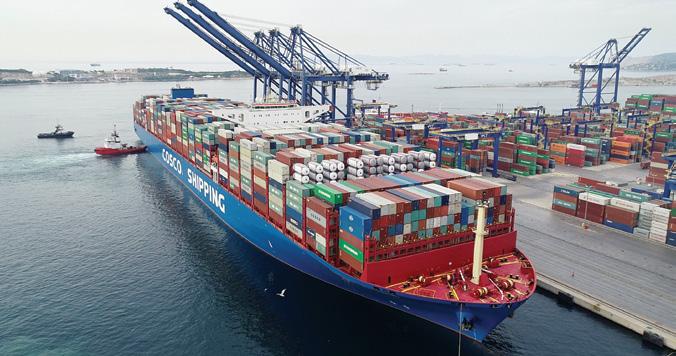
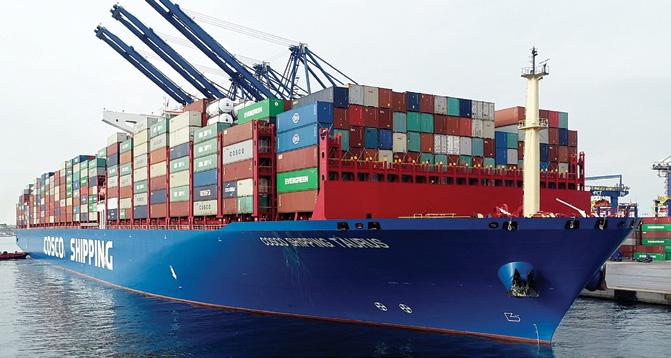


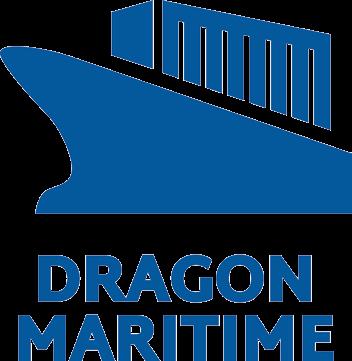
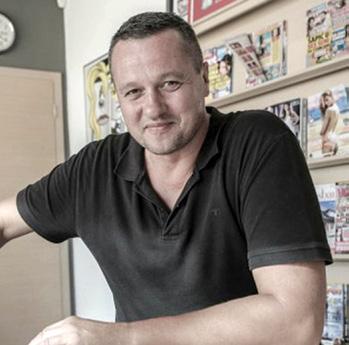
On that September 4th, 1957, Dorothy Counts (15) wore her best dress and proudly went to her first class at Harry Harding High School, in Charlotte, North Carolina. Dorothy was the first black student in this school.

At the persuasion of John Z. Warlick, leader of the White Citizens Council, who urged the boys to “keep an eye on her”, young Dorothy’s lynch has begun. The girls were encouraged to spit on her and throw rocks at her. Dorothy walked by proudly with her head up high, surrounded by a crowd of faces disfigured by hate.
The harassment continued the next day – she was pushed at the cafeteria and her tray with food fell out of her hands; two white girls who dared to help her were ridiculed and they had to
withdraw. During that time, her family received threatening phone calls, their car was smashed. After four days, the father decided to take Dorothy out of school.
Photographer Douglas Martin, who found himself at the school on that September 4th, won the 1957World Press Photo of The Year Award.
The Counts family soon moved to Philadelphia, where Dorothy enrolled at Johnson C. Smith University.
Half a century later, in 2008, Hard ing High School awarded Dorothy Counts an honorary diploma. In 2010 Dorothy received a public apology from a large part the crowd who had harassed her in 1957. The school library was renamed after her.
I saw the photo of Dorothy today at the Freedom Fighters exhibition organ ized by the Robert F. Kennedy Center at the Palazzo Reale in Milan.
Today, Dorothy is 72 years old, living in Philadelphia.
Do you know a Dorothy Counts near you? Black, blonde, Roma, refugee, les bian, obese, acne prone, developmen tally disabled… different?
I wrote this text in October 2014 in Milan. Two weeks ago, when I saw a photo of Dorothy at the National Museum of African American History and Culture, I was reminded of this story again and realized that it is just as relevant in 2022 as it was in 1957 and 2014.




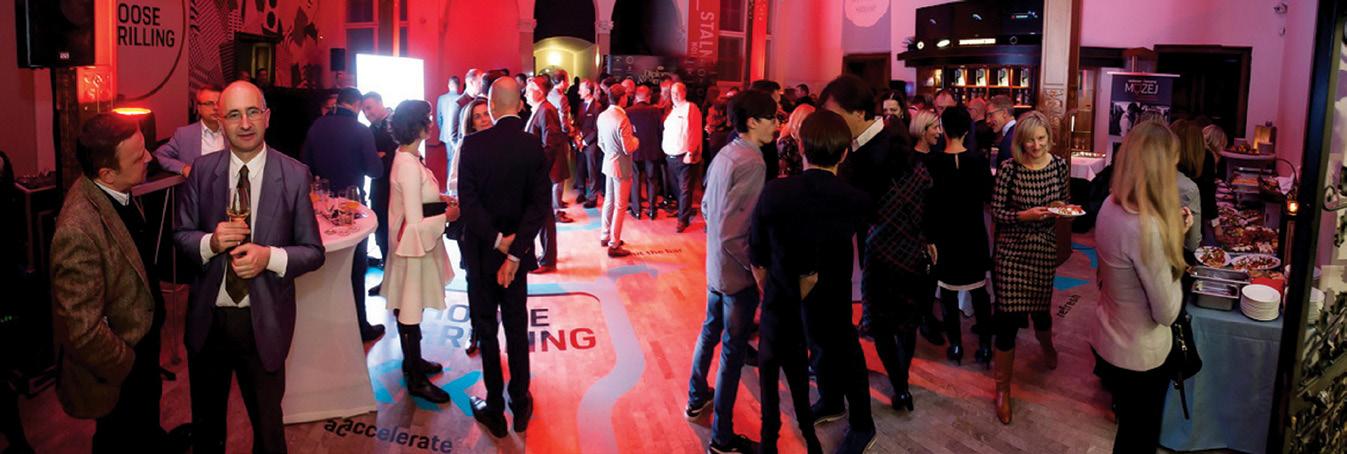
One rainy November night, precisely 5 years ago, we launched Diplomacy&Commerce Croatia in the residence of the then British Ambassador in Zagreb, Andrew Dalgleish, and in the presence of numerous guests. Everything seemed just right and just as we imagined it. Excellent at mosphere, the mood, the guests – all this rounded up the presentation of the magazine with the then German Ambassador to Zagreb Thomas E. Schultze and CMC president Robert Čoban. We were off! The issues followed, we began to make contacts, we were and still re main the only magazine in Croatia that covers topics from business to diplomacy. The first

birthday came and we celebrated it at the Mu seum of Arts and Crafts with over 100 guests, the second birthday party was at the Mimara Museum. The magazine lived its life and devel oped just as quality content does. Then came the corona pandemic and everything stopped for a moment. It seemed that life has stopped, but not for long. Management during the crisis led us to further develop our online channels and presentation, and to accustom the audi ence and clients who like and want to «feel» this kind of content to new communication channels. And it went on an upward trajectory. “Clicks” were multiplying and that’s when we realized that we have completed our “baby” and that it is now what it was supposed to be – an excellent platform and content, a luxury magazine in terms of appearance, quality and content with modern and new in it. We re turned with the print version, because these go together. We started flying with our new wings. And then came a new crisis, it seems that crises never end – the war in Ukraine. But we continue to fly, live, move forward. Five years of non-stop work and publishing is not a small thing even in the best of times, and let alone in these times when we don’t know what tomorrow brings.
Diplomacy&Commerce magazine also received a reinforcement of some sort. Our publishing company is the holder of the re gional license for The Economist World Ahead editions, which is being published in over 90 countries, including Croatia, where we have been organizing “The Economist Svijet u...” conference for 4 years already. Our bird is now flying like a jet plane.
We are proudly moving on, ready to tackle new challenges and bring in new work wins.
boban sPasojevIč Director / CEO Diplomacy&Commerce Croatia Director of “The Economist Svijet u …” Project Launching party 2017. at the residence of the British ambassador in Zagreb Robert Čoban publisher, Sandra Čoban, Boban Spasojević, first birthday celebration, MUO Tie Regiment, second birthday celebration at the Mimara Museum in ZagrebViše na audi.hr Ovlašteni Audi partneri: OSIJEK: AutoZubak, Martina Divalta 326, tel.: 0800 5432 | RIJEKA: Porsche Inter Auto Rijeka, Škurinjska cesta 2/B, tel.: 0800 0365 | SPLIT: Audi centar Split, Kralja Držislava 51, tel.: 021/ 682 200 | ZADAR: Auto Hrvatska Automobili. F. Lisice 85. tel.: 023/342 466 | ZAGREB: AutoZubak, Ljudevita Posavskog 7a, Sesvete, tel.: 0800 5432 | Porsche Inter Auto Jankomir, Velimira Škorpika 21-23, tel.: 0800 0365 Prosječna potrošnja goriva: 5,3-7,6 l/100 km. CO₂-emisije, kombinirano: 140-182 g/km. Slika automobila je simbolična i sadrži dodatnu opremu dostupnu uz nadoplatu.


Minister of Physical Planning, Con struction and State Assets
Changes are the most evi dent in the new Pro gramme of measures for the reconstruction of earthquakedamaged buildings, which was adopted at the end of July and is in full implementation, Minister Ivan Paladina, Minister of Physi cal Planning, Construction and State Assets, told Diplomacy&Commerce. The Min ister also announces the new Law on the Management of State As sets, the goal of which is the de centralization of the management of state property and complete digitalization.
Seven months ago you be came a minister in charge of re construction. What is differ ent today compared to the past period, in what stage is the re construction?
After assuming office, I ana lyzed the situation and presented to the public a plan to speed up the reconstruction. Today I can say that this plan is working and that the set goals are being met. One of the goals was to have 200 construction sites for structural renovation and construction of replacement family houses in earthquake-affected areas by the end of September, and it was achieved. Significant progress has also been made in resolving re quests for renewal, although it is a very extensive and demanding process. The Ministry received al most 20,000 requests for renewal, and at this moment, more than 35% of them have been processed, while only around 15% were pro cessed at the beginning of the year, which is a clear indication that the overall process has ac celerated. It is also important to point out that more than 6,000 properties were reconstructed
with less demanding works, i.e. non-structural reconstruction, which is not a negligible number. Part of them was restored through organized restoration, and part through the payment of financial aid to citizens.
What concrete changes would you point out that encouraged the acceleration of the renova tion process?
Due to global disruption in the markets of building materials and products, it was necessary to review the maximum prices for goods, works and services, so they are updated quarterly, and if necessary, more often in order to avoid difficulties with contract ing works. For the same reason, variable prices were introduced when concluding a contract. An important change is also the publication of tenders at a block level, i.e. a change of method in the system so that tenders are no longer published only for indi vidual buildings, which greatly affected the duration of the pro cess. Analyzing the situation in other countries that have experi ence with natural disasters and the way in which they carry out remediation of the consequences of disasters, we have improved the self-reconstruction model, i.e. we encourage citizens to take on the organizational part of real es tate reconstruction with the aim of speeding up the reconstruc tion of their homes, for which we compensate them for the time spent through compensation for the cost of coordination (selfreconstruction manager) in the amount of up to 25,000 HRK for family houses or up to 80,000 HRK for multi-apartment build ings, depending on the type and size of the property. Also, for the reconstruction of family houses, it is possible to pay an advance for the development of the project and a 25% advance payment for the execution of works, and the entire funds for the contracted works can be paid to citizens before, during or after the selfreconstruction, depending on the model they choose.
You mentioned experiences of other countries. Do you coop erate with other countries that have experience in recovery after disasters?
We appreciate and apply experi ences of other countries in dealing with the consequences of disasters and take examples of best practic es. I would especially like to point
more THaN 6,000 properTIeS were reCoNSTrUCTed wITH leSS demaNdINg worKS, I.e. NoN STrUCTUral reCoNSTrUCTIoN, wHICH IS NoT a NeglIgIble NUmber
out the high-quality cooperation with the Embassy of Japan in the Republic of Croatia, which has been supporting Croatia in the re construction process from the be ginning. Recently, the Build Back Better Together – Supporting the Post-Earthquake Reconstruction through Japan-Croatia Knowledge Exchange conference was held, where Japanese experts participat ed and shared their knowledge and experiences. The experiences of countries that have been develop ing disaster risk reduction systems for years are of great importance to us, and Japan is certainly leading the way with its seismic construc tion methods.
Your department is in charge of state assets as well. Are state assets put into operation?
The establishment of a highquality system of management and disposal of state assets is one of the Ministry’s priorities. Currently, the preparation of the new Law on the Management of State Assets is underway, and our goal is for it to be adopted in

Q2 next year. We are considering the option of introducing partial decentralization of the manage ment of state assets with the new law, that is, leaving part of the real estate to the management of local self-government units. In addi tion, the Terms of Reference for complete digitization of the state assets management process is al ready ready. The Ministry has an nounced procurement procedure for the creation of the system, and the system will be part of the ISPU and will come into existence before the adoption of the new law. We are also planning to cre ate a platform for the “e-public tenders” system, which will en able bidding on state-owned real estate. As for the current manage ment of state property, unfortu nately we are faced with the fact that many state-owned real estate are the subject of judicial pro cesses, therefore we are unable to dispose of these real estates, but we also continuously have active tenders for the sale of real estate, such as the current sale of the Vil la in Nazorova 72 in Zagreb, and
tenders for the lease of business premises are on-going.
You recently visited the Expo Real real estate and investment fair. How were state-owned projects presented at that fair, what impressions did take from that?
The Ministry of Physical Plan ning, Construction and State Assets attended this expo for the first time this year in cooperation with the County of Istria and Bri juni rivijera d.o.o. We presented real estate and the largest invest ment projects and locations from the portfolio owned by the Re public of Croatia to international investors at exhibition space, in panels and conferences held at the fair. I believe that it is im portant that Croatia has its own representatives in such events because we have great investment potential and international inves tors recognize this. They are fa miliar with the current introduc tion of the euro, they follow the course of the tourist season, as well as our entry into Schengen, all of which are elements that en courage the investment climate. The Ministry is at everyone’s dis posal for cooperation, especially through encouraging quality investments that can bring ad ditional tourism and economic development to Croatia through the creation of new content, at tracting new guests, employment, and thus positively influencing
overall GDP growth. As part of the fair, I also held a working meeting with State Secretary at the Fed eral Ministry of Housing, Urban Planning and Construction, Rolf Bösinger.
The energy crisis has also been a current topic lately. Your Min istry conducts public calls for energy reconstruction. In this global situation, do you offer additional opportunities to cit izens?
As part of the comprehensive package of measures to help citizens and the economy that the Government presented in September, at the initiative of the Ministry of Physical Planning, Construction and State Assets, a significant step forward was made in encouraging energy ef ficiency. Thus, at our suggestion, a Decision was adopted, provid ing almost one billion HRK for energy reconstruction and in creasing the energy efficiency of multi-apartment buildings and family houses by the end of next year. Compared to previous years, when an average of HRK 200 mil lion was provided for this pur pose, according to our estimates, with this five times larger amount 10,000 family houses, or 300 multi-apartment buildings, can be energetically reconstructed.

aT oUr SUggeSTIoN, almoST oNe bIllIoN HrK waS provIded For eNergY reCoNSTrUCTIoN aNd INCreaSINg THe eNergY eFFICIeNCY oF mUlTI-aparTmeNT bUIldINgS aNd FamIlY HoUSeS bY THe eNd oF NexT Year
Judging by the response to earlier calls for energy reconstruction, it is clear that there is great interest from citizens and that many of them already have documenta tion ready, so these projects could be carried out in a short time. It is necessary to encourage energy efficiency and self-sufficiency in Croatia, so in addition to energy reconstruction of residential buildings, we are improving en ergy efficiency through renewable energy sources. With this aim in mind, the Decision regarding the encouragement of investment in solar power plants was also adopted, the implementation of which will facilitate the legal pro cedure for investing in solar pow er plants. The legislative frame work will be changed in order to simplify the obtaining of the necessary documentation for the installation of solar power plants and it will be possible to expand the areas where the construction
and installation of solar power plants are allowed, which will greatly contribute to increasing energy independence. The sign ing of the contract with the users for the Energy Reconstruction of multi-apartment buildings is in progress for the call that ended in August, and was co-financed with NPOO funds. More than 90 build ings across 16 counties and in the City of Zagreb received grants.
The focus of your mandate is certainly placed on renewal, however, you manage a very broad portfolio. What key ac tivities would you highlight, apart from those we have al ready mentioned during the in terview?

Along with the reconstruction, the Ministry also conducts nu merous important measures and activities. One of the most popular activities is the subsidy program for buying or building houses or
which we are equipping 556 mu nicipalities and cities and 21 coun ty institutes for physical planning in order to make their work in ISPU more efficient and the ser vice for citizens better. Through 17 e-Services, ISPU enables faster, more efficient, cheaper and more transparent work, as well as easier access to data about the space that surrounds us (spatial plans, loca tion, construction, use permits, energy certificates, etc.) to all its users, the professional and scien tific community , potential inves tors and all the citizens.
Wednesday, March 1, 2023, hotel Westin, Zagreb, Croatia

SustainInvest is a unique event that brings leaders, inspiring speakers, regulators, financial market participants, corporate managers and sustainability-standard setters to share how they respond to practical and regulatory challenges and opportunities.


Join us at www.sustaininvest.hr for the inaugural gathering designed for business professionals to learn more about sustainability.

Organiser: Partner:


The introduction of a new income tax outside the framework recommended by the European Commissionand they recommended the pos sible taxation of only the energy sector - will stop investments and employment and further wage growth, which are circumstances that promote recession and a po tential economic crisis, says Irena Weber, Director General of the Croatian Association of Employ ers, for Diplomacy&Commerce. Obstacles on the path to a stronger and better business are adminis trative barriers, too much bureau cracy and rigid labor legislation, as well as the tax burden on labour, according to Weber.
Government accepts our numer ous initiatives. Among them, for example, is the expansion of the measure limiting the price of elec tricity for all companies, regard less of their size or the industry in which they operate.
We also managed to increase tax-free receipts for employees, and we insist on a stronger reform of the income tax and the new La bor Law. We are currently focused on the potential introduction of an additional income tax, because we believe that any introduc tion of an additional tax burden is unacceptable in this difficult economic moment, and especially because we think that its intro duction would punish the most successful employers.
HUP agrees that we need to act proactively and create a positive entrepreneurship climate in Croa tia, and we need to push social
Being an experienced manager, how much does the position of HUP director mean to you per sonally?
This is exactly why I came to HUP, as the umbrella association of employers, which always ad vocated for smart and successful Croatia over its 30 years of exist ence. I want to help create a better business environment and chang es of legislative and administra tive frameworks we operate in, and make it easier for thousands of talented and perspective entre preneurs to transform their ideas into quality and sustainable com panies. In a short period of time, we managed to achieve important things for entrepreneurship, the
partners toward solutions that will increase competitiveness of the entire society.
Croatia has huge potential, I see it as a country of satisfied and well-paid employees, a country that develops investments in in novative projects with high added value, and one that easily and quickly adopts new technologies.
What do you think will be the biggest challenges the next year and why?
We are facing a recession in the countries of the European Union, like Germany, Austria and Italy, which are also our biggest trading partners. The initial consequences of the slowdown of these econo
mies are already seen in domestic economy.
Orders are being cancelled in all the sectors, and the processing in dustry is especially jeopardized.
A survey among HUP members showed that orders are being can celled from Germany, Austria, Ita ly, Slovenia, and even Switzerland. We already recorded an average 20% drop, and according to HUP’s survey, entrepreneurs expect at least another 20% drop in the next 6 months. A part of members even reported a complete halt in orders
In the European Union and Germany, automobile industry, chemical industry, production of construction materials and production of durable consumer goods were impacted the most.
Therefore we can expect the crisis in markets of our trade partners could affect the metal industry, textile production and construction industry the most, but independent IT freelancers could also be in trouble, since tech companies are cancelling coopera tion because they themselves are also firing around 10% of their workforce.
Instead of introducing a new tax, we think that now is the time to sit down with the Government to come up with measures and solutions to fight the upcoming crisis. This would be a continua tion of good cooperation we had during the pandemic and the en ergy crisis.
The Government has an nounced a tax on extra profit. HUP strongly opposes the new additional tax, which the Gov ernment calls a solidarity tax...
I have already emphasized the gravity of the situation we are in, therefore we at HUP must warn that this is not the time for addi tional taxes or to raise uncertainty for the business community with an experimental tax.
The idea of a new tax is on the trail of the so-called windfall tax, i.e. profit tax, which fell from the sky, and after two difficult years for entrepreneurs and the fight against the pandemic, the lock down and then the energy crisis, anyone who earned money in the last year didn’t get it because it just fell in their lap, it is a result of hard work and responsible business.
No country of the European Union, except Hungary, has ex panded the tax beyond the energy sector, so the proposed model re minds us of the Hungarian model at the moment, and that is not a
model we want to emulate.
Crisis is before us, we don’t know how deep, and introduc tion of additional tax will push us into a very difficult position. Tax will eat into the capital for invest ments, and instead of increasing the salaries of their employees, companies will increase the budg et with the money earned.
In the EU, Croatia is at the bottom of the ranking in terms of profitability of our economy, which means that we earn much less than our EU colleagues, and we are second in terms of the tax burden, that is, the part of the income that we have to pay to the state.
What will be your priorities at the head of the HUP (advocat ing tax relief for work, abol ishing administrative barriers for the development of invest ments and entrepreneurial ide as, simpler and more competi tive business in Croatia)?
Priority Zero imposed itself, which is the protection of entre preneurs from shocks caused by the dramatic increase in energy prices. For many entrepreneurs, this is literally a matter of life and death. A short term priority is the adoption of a new and modern Labour Law, as a key lever for speeding up the market and wage growth. Tax relief for work is a
public television doesn’t have any TV shows dedicated to entrepre neurs and topics about entrepre neurship.
We also have to conduct re forms in the public sector so that the money paid to the state by citi zens and entrepreneurs is spent in the best possible way, and so that they receive the best service for which we pay dearly - as much as 42 percent of our income goes to the state and local units, and today it is questionable whether we are getting enough from the institutions for almost half of our earnings.
ameNdmeNTS To THe labor law THaT THe goverNmeNT SeNT To THe proCedUre are NoT SUpporTed bY HUp beCaUSe memberS oF repreSeNTaTIve Trade UNIoNS are plaCed IN a prIvIleged poSITIoN Compared To oTHer worKerS
What problems do employers face - all those who hold Croatia’s economy in their hands?
The Croatia that we, the em ployers, strive to is a technologi cally advance country of entrepre neurs and quality and satisfied employees. The entrepreneurs are those who bring in new ideas, cre ate jobs, create added value, fill the budget – they are the creators of a more modern society, they inno vate the market and the system… Entrepreneurs hold the future in their hands.
Entrepreneurs have made great successes in this country, and we certainly have a large number of individuals and companies that we can be very proud of. Some we know of and some we have never heard of and they do global busi ness. What is certain is that this strong entrepreneurial force often does not get enough public space, and if it did, it would bring a new big wave of optimism. Uncovering this optimism is my main task.
Obstacles on the path to a stronger and better business are administrative barriers, too much bureaucracy and rigid labour legis lation, as well as the tax burden on labour. We have to change that so the entrepreneurs could breathe easier, accelerate the growth of their employees’ standard, open ing of new jobs and new invest ments.
prerequisite for keeping people in Croatia, and in an ideal scenario we hope for the return of emi grants.
Employers give their maximum and they are increasing salaries as much as they can. Even 88 percent of HUP members increased the salaries of their employees during this year, some even did it several times, and they also hope to be solvent enough to use the oppor tunity to award their employees, which opened with the Govern ment’s set of measures. On average, companies that are HUP members increased the income of their em ployees by over 10% by September this year, and salary growth would even speed up if our proposal for work relief would be adopted.
I want to remind you that we proposed raising the personal deduction from HRK 4,000 to HRK 5,000 and reducing the lower income tax rate from 20 to 15 per cent.
One of my main tasks is to change the perception of entre preneurship and entrepreneurs in public space. As incredible as it sounds, I think that people are not aware of the fact that it is exclu sively and only the entrepreneurs who create new added value and fill the state budget, they are the ones that enable the financing of everything else, from state and public sector to state investments. Well, I don’t find it normal that
What is HUP’s cooperation with the decision makers, and also with unions, because it seems that you cannot be without each other?
HUP, the Government and the unions are social partners: these are the three aspects of the mar ket without which there is no full picture. We balance the different views of stakeholders on the mar ket, and we regularly find the best solutions in this communication. HUP advocates an entrepreneurial climate, the creation of new ideas, employment, market develop ment, we create new values and create a modern state that will have a flexible organization, high efficiency and use all market re sources in the smartest way.
We also have to work together on a modern Labour Law, which is a prerequisite for a vibrant labor market. Our employees move to countries with flexible legislation because such legislation, along with a lower workload, helps to create new jobs, advancement for employees and increase their standards, as well as the place ment of new investments.
Amendments to the Labor Law that the Government sent to the procedure are not supported by HUP primarily because we did not get a modern Labour Law with them, and in principle be cause HUP cannot support a law with discriminatory provisions. Namely, the proposed law places members of representative trade unions in a privileged position compared to other workers.
Croatian employers will not divide their employees depending on whether they are in union or not. We will not pay our employ ees Christmas bonuses and prizes depending on whether they are union members or not, so in prac tice we will correct the injustice that they are trying to implement in this labour law.
The main reason for the current high pric es on the real estate market is that we are still in a cycle of low interest rates on loans that began in 2015, which is being stopped by increasing the price of money to slow down the demand, says Dubravko Ranilović, President of Real Estate Association with HGK, for Diplomacy&Commerce. Prices of square meters are highest in the most famous tourist places such as Rovinj, Opatija and Dubrovnik, but also in Zagreb, and this primarily refers to the newlybuilt high-quality real estate in the best loca tions in the city, Ranilović reminds.
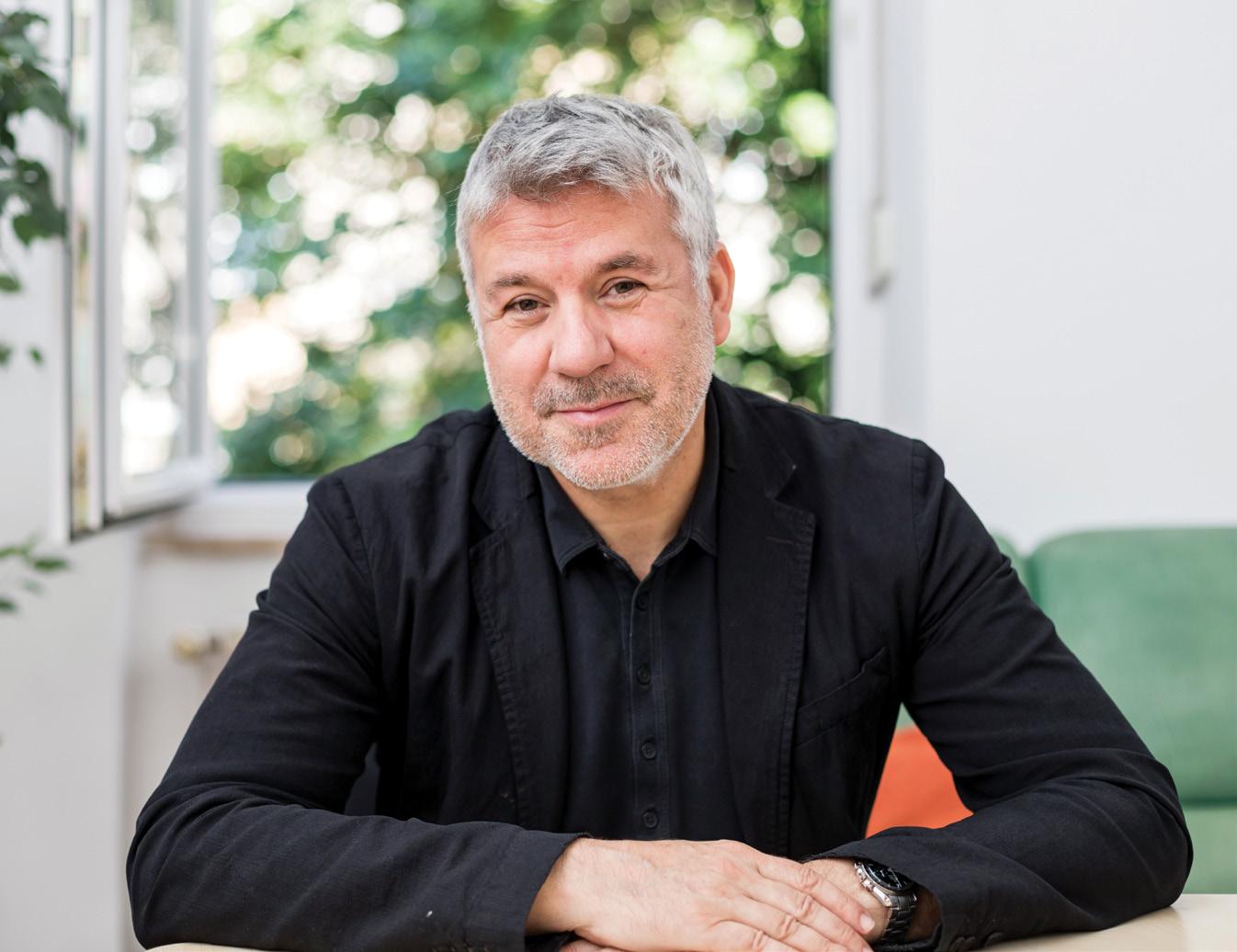
Total construction activity has been slow ing down lately, with the increase in Au gust being the lowest since a 2.2 percent year-on-year decline in May 2020 (largely affected by the lockdown period a month earlier). Along with the decline in the lev el of building permits issued (-5.5 percent year-on-year in August), this signals that the general trend in the construction sec tor is reversing into a negative trend by the end of 2022. If so, how long do you think it will last?
There are many peculiarities that affect the activity of the construction sector. One of them is the need for reconstruction after the earth quake in Zagreb and Banovina, which has not yet
dUbravko ranIlovIć llb President of Real Estate Association with HGKwarmed up, and then there’s the seasonality of the market. Slowdowns are more noticeable in some parts due to the global issue of labor short age and rising prices of materials and construc tion costs that occurred during the Pandemic. However, while demand is high, it also stimu lates the construction activity.
Will this slowdown lower the prices of square meters for the retail sector and by how much? Also, what affects the forma tion of the price?
Causes of eventual decline on the real es tate market, which would indicate there is a slowdown in demand, and then a secondary drop in prices will occur due to other, primarily economic causes. Construction activity is a con sequence of weights in the real estate market. Therefore, it will primarily be affected by the decrease in demand.
The main reason for the current high prices on the real estate market is that we are still in a cycle of low interest rates on loans that began in 2015, which is being stopped by increasing the price of money to slow down the demand.
During the pandemic, cheap money was used to incite consumption which leads to high inflation, which chases away the investors in real estate in order to preserve the value of money through price rise, and to mitigate the consequences of this same inflation as much as possible.
We expect changes in trends next year, which will reduce the market volume and the number of transactions at first, , and then, after some time, it will influence real estate owners to ad just their asking prices to the new circumstances on the market.
To what extent will Croatia’s entrance in the eurozone affect the retail and commercial real estate market, if we take into consider
ation the coastline and foreigners’ interest in purchasing real estate on the coast?
We should bear in mind that in more than 1/3 of acquisitions of residential real estate in the Republic of Croatia, the buyers are foreigners - primarily EU citizens. Foreigners (foreign natu ral and legal persons) acquired exactly 12,518 properties in the period from July 1, 2021 to June 30, 2022, which represents 35.8% of the total volume of 34,927 residential (apartments and houses) transactions in the same period.
As a rule, the vast majority of acquisitions take place in coastal destinations, so we can say that in this sense Croatia has 2 markets; the continental one and the coastal one. Therefore, changes in trends will not be reflected equally on all properties and on all parts of Croatia.
The introduction of Euro and Croatia’s joining the Schengen zone will certainly have a positive effect on the real estate market, it will additional ly bring foreigners closer to Croatia in a way that they can buy real estate in their own currency and they will be closer to their vacation homes, be cause without borders, travel will be shortened in terms of time and even more psychologically.
we SHoUld bear IN mINd THaT IN more THaN 1/3 oF aCqUISITIoNS oF reSIdeNTIal real eSTaTe IN THe repUblIC oF CroaTIa, THe bUYerS are ForeIgNerSprImarIlY eU CITIzeNS
However, we need to emphasize that these two facts, which are certain to be realized at the beginning of next year, will not have a decisive effect on the market, because the economic situ ation of Croatia and the world is more important for the market. If the trends are downward due to economic reasons, they will remain so until the moment those reasons disappear.
Croatia has some market specificities, but all crises as well as market upswings were of global origin, and this will continue in the fu ture as well.
What do the statistics say by region, where is the least construction, where the most, and which region has the highest and the lowest prices?
Most properties are sold and built in the capital city of Zagreb, and these are primarily residential and commercial properties. Con struction activity is also high on the coast, pri marily due to the construction of apartments, the construction of which is encouraged primar ily by the low tax on tourist rent, which in the long term is not encouraging because it empties the cities, artificially increases settlements and reduces the green zone, and prices are getting higher, so due to this it is increasingly difficult for the locals to afford housing.
Rural parts of continental Croatia are the least active. Prices are highest in the most famous tourist places such as Rovinj, Opatija and Du brovnik, but also in Zagreb, and this primarily refers to the newly-built high-quality real estate in the best locations in the city.
What HGK and you in the Association are doing to encourage the development of real estate trade?

The Real Estate Association that operates within HGK is made of entrepreneurs who joined forces to make the Real Estate Market more trans parent and to encourage it to move in the right direction in the interest of all the participants. It is not important to encourage trade every moment on the market, but it is important to push the mar ket in the direction in which it will be stable in the long term and feed many participants. A market that leaps too far after a change in trend will have a very hard fall, which then ultimately leads to the collapse of many business entities. We who live from the market strive to be the voice of reason in extreme situations. Right now we are in one of these situations. We learned a great deal from the crisis that started in 2008 and it would be stupid of us not to remember the lesson. All of us who have real estate companies barely survived those crisis years, primarily because of the long-term consequences of the aforementioned crisis, but also because of the too big of a bubble that we did not deflate in time, when it was necessary. The construction sector, which lost the most workers and business entities, suffered even more.
All the participants in the real estate market have to be responsible, as well as those who report about it. It is very important not to en courage unrealistic rise or excessive pessimism when the numbers go down. And they will, be cause it is logically for the market to have cycle changes which creates a desirable economic dynamics. Nothing lasts forever, including the growth of the real estate market.


Weather companies choose to implement hy brid or flexible work models, they must continue to develop and invest furthermore in their office space infrastruc ture in order to provide employ ees with a stimulating and crea tive place to work. The rate of vacant office space is less than 3%, which is extremely low and as such is the lowest compared to all capital cities in the region. This is due to the fact that con struction of new office space projects is twice less than the total annual demand and reali zation, which has been over 55,000 m2 in the last 5 years of rented office space per year.
There is a lack of new firstclass office space projects in the market which, with their infrastructure, concept and all necessary additional content, can meet all the needs of today‘s modern business and, extremely important, follow ecological and sustainability standards. Of the entire offer of office space and projects in Zagreb, 65% are older than 15 years and fall into the class B, so there is plenty of room on the market for new office proj ects. Office space rental prices have also grown in the previous period due to the low vacancy rate and both high and stable demand, so now the rent for first-class of fice space is between 13-15.5 €/m2, while for class B the rental price is between 10-12€/m2.

The office space market continues its expansion after the pandemic period, so towards the year end we are recording the strongest demand on the Zagreb market in the past 2 years.


Modern times and new technol ogies have significantly influenced the way of doing business. It used to be considered that it was enough to provide an employee with a desk and a computer, however nowdays office space is increasingly used to evoke a sense of optimism, wellbeing and belonging, encourage greater engagement and improve overall results.
In the last few years, new trends in the organization of office space are mostly present in the ICT sector, however other sectors such as banks and auditing companies are progres sively turning to them. Instead of classic separate offices, employees are preferring a system of connected areas where they can work, that support different ways of working and give employees the opportunity to choose whether a group or indi vidual work is more appropriate at a given time. Also, as a consequence of the new way of working, plug & play informal work zones are in creasingly used, in order to improve communication and increase the productivity of employees through the mentioned diversity of space.



Only the finest malt and grain whiskies lie within Chivas 12. Within the 12-yearold Scotch whiskies that go into our signature blend you’ll find Strathisla single malt, Strathclyde single grain and more to create a whisky that’s remarkably smooth. Distinctive Speyside flavours of crisp orchard fruits, wild heather and sweet honey can be found in every sip of Chivas 12, with a rich and generous taste that’s synonymous with our house style.
This Chivas Extra 13 blended Scotch whisky selectively matured in Oloroso Sherry Casks is inspired by the Chivas brothers’ 13 King Street Emporium in Aberdeen, where they imported different spirits, exotic spices, and luxury food items from across the globe. Imparting its own unique combination of characteristics onto the Chivas blend, this finish brings new and contrasting flavour notes to the spirit for the first time.



C reated in 2018 by Master Blender Sandy Hyslop, Chivas XV is a celebratory way to enjoy blended Scotch whisky. This blend is laid down to rest for a minimum of 15 long years – represented by the Roman numerals XV – so that rich flavours are ready for you to enjoy in an instant.Pairing this long maturation with a selective finish* in cognac casks results in a truly luxurious and velvety finish. With notes of rich sultanas and touches of warm cinnamon, this is a blend worth toasting to.

olding coveted titles such as ‘Best Blended Scotch Whisky’ from the International Wine and Spirits Competition in 2014, Chivas 18 impresses with every sip. This 18-year-old Scotch whisky develops intense flavours within only the finest casks, resulting in a refined whisky with a never-ending flavour experience. Chivas 18 holds an incredible 85 unique flavour notes in every drop. Uniquely rich and complex, this 18-year-old blended Scotch whisky has won both awards and hearts of whisky-lovers across the world.



C hivas Ultis is the first blended malt whisky from the house of Chivas Regal. Chivas Ultis captures the true essence of Chivas Regal. Blending five of our most precious signature single malt Scotch whiskies from Speyside, the rich and full-bodied flavour of this blended malt whisky reflects the true diversity within the region. Less than 1% of the millions of casks within the Chivas inventory were used to create Chivas Ultis. Each cask was individually hand-selected and nosed to ensure the highest quality within this blend.
PLEASE DRINK RESPONSIBLY.

he world’s first luxury whisky. Taking New York by storm in 1909, this legendary whisky has seen it all. Having survived two World Wars and outlived Prohibition, this 25-year-old Scotch whisky was reborn to be saluted and honoured evermore. Only the rarest 25-year-old Scotch whiskies are blended together for this legendary blend. Every drop is meticulously blended to rekindle the delicate intensities and subtle textures made famous by the original Chivas 25 in the early 1900s.
General Manager Takeda Croatia, Slovenia, Bosnia
& HerzegovinaTTakeda’s main goal is that all patients have access to latest breakthrough medi cines that can improve their health while also being mindful of the fis cal responsibility we do have to wards our healthcare system, for Diplomacy&Commerce says Mrs Viktorija Zadro Huml, General Man ager Takeda Croatia, Slovenia, Bos nia & Herzegovina.

You are General Manager in Croatia, of a global company whose main goal is health, but also development and innova tion. How much has global con nectivity contributed to the de velopment of your company and in what way?
Takeda is the oldest and largest Japanese pharmaceutical company with a very long tradition. It was established in 1781, and June 2021 marked our 240th anniversary. With acquisition of Shire in 2019, Takeda became one of the leading global biopharmaceutical compa nies. I am responsible for Croatia Plus region, which includes Croa tia, Slovenia, and Bosnia and Herze govina. Locally, we definitively feel the strength of being part of a large, innovative corporation. We were able to bring innovation in terms of new medicines and patient programs to all our markets. Since 2019, we enabled access to over 20 medicines and new indications for patients in all our three markets.
people are oNe oF
THree KeY bUSINeSS pIllarS aNd KeY parT oF bUSINeSS vISIoN IN TaKeda
Takeda is a data and innovation driven company and a strong contributor to the wave of innovation in Europe
We have one of the strongest pipe lines in the industry guaranteeing innovation for our patients for years to come.
Working for a global company offers multiple career development opportunities. Takeda operates in 80 countries in 4 regions. People can have international careers yet still work out of their home, or they can move between countries. Next to patients and planet, em ployees are one of the key pillars of our company. We aim to create a diverse and inclusive organization where people can thrive, grow and realize their potential.
How different are business conditions in Croatia, and, for example, in the USA or Japan, where Takeda is the leader in its field?
It is difficult to compare such historically and economically dif ferent markets. Croatia has a social healthcare system available for all citizens, but our healthcare sys tem is facing many challenges and financial constrains. Takeda as a stakeholder is willing to collaborate with Ministry of Health, Croatian Institute for health insurance and all other key partners and stake holders on the market to ensure sustainable healthcare for Croatian patients.
By focusing our R&D efforts on four therapeutic areas — Oncol ogy, Rare Genetic and Hematology, Neuroscience and Gastroenterol ogy — along with other targeted investments, we can continue to push the boundaries of what’s pos sible in order to bring life-changing medicines and therapies to patients worldwide. As a patient-first com pany, we partner with patients, patient organizations, caregiv ers and other key stakeholders to understand the burden of disease and unmet needs that our core therapeutic areas can help alleviate. These collaborations make sure we are developing medicines and that our work is in partnership with pa tients, not simply for patients.
In our efforts we are dedicated to help in transforming healthcare system in direction of value based solutions which is highly resonat ing with needs of health authorities and healthcare system users.
Our upcoming healthcare re form needs to be based on vision that supports innovation, tracking of treatment outcomes in order to focus and optimize where we invest available resources. We are witnessing a global data and tech nological revolution, spanning from USA to Japan to Croatia, which
will have a profound impact on our health. Croatia needs to become a part of this to ensure that proper diagnosis and treatment are made available in the shortest amount of time for each patient. We need to use technology and available break throughs in medicine to ensure the best possible outcome for a per son’s health.
What is it that distinguishes Takeda from the competition and what is your business poli cy towards employees?
As mentioned earlier, people are one of three key business pil lars and key part of business vi sion in Takeda. By 2024, Takeda’s global-to-local program will deliver best-in-class, tailored well-being solutions designed to create an Exceptional People Experience, im prove retention and enhance per formance to provide Better Health and a Brighter Future to people worldwide. Our efforts are recog nized externally and confirming that we are on the right track. We witness this recognition through number and quality of applicants each time we have an open position advertised. Takeda was recognized as a Family Friendly Employer in 2021 by Central State Office for De mographics and Youths. In 2021,
Takeda Croatia has received an IPRA Golden Global Award in the category of Best Employee Commu nications category.
We aim to support our em ployees in reconciling personal and professional life to create an environment that fosters lifelong learning, growth mindset and ena bles employees to thrive inside and outside of Takeda.

We have numerous treatments in later stages of clinical research and expect their approval in the next three to five years across our key business areas (oncology, rare genetics and hematology, neuro science, gastroenterology, plasma derived treatments and vaccines). To illustrate the strength, I will mention that in phase 3 of clini cal research we have 6 molecules/ indications in oncology and 9 mol ecules/ indications in rare genetics and hematology alone. We con tinue to build our gastroenterology portfolio with 7 research molecules and indications in phase 3. We obtained European Commission approval and are awaiting EMA ap proval for first treatment for trans plant recipients (after solid organ transplantation or haematological
transplantation) with resistant or refractory Citomegalovirus infec tion – condition that is a serious threat to post-transplant patient recovery.
How much has the global crisis we are witnessing after the co rona pandemic, war in Ukraine, inflation affected your plans and business (in numbers)?
I believe that the full outcomes of the crisis remain to be seen. We are monitoring the situation and trying to find best ways to help our patients, the healthcare system and our employees. Takeda’s main goal is that all patients have access to latest breakthrough medicines that can improve their health while also being mindful of the fiscal responsibility we do have towards our healthcare system. We need to work on solutions that are sustain able and adaptable to pace of global change.
You also pay great attention to social responsibility. Through what programs and in what ways?
Our goal is working towards a world with accessible healthcare for all. We partner with world-class or ganizations and NGOs with proven track records of addressing global health problems in innovative, sus tainable manner.
Purpose-led and value-based ap proach drives all of our actions and decisions.
Takeda’s commitment to en vironmental sustainability is enshrined in the three commit ments that are articulated in our vision – “Discover and deliver lifetransforming treatments, guided by our commitment to Patients, our People and the Planet”. The Planet Pillar consists of three programs around which our projects, actions and activities are structured – Cli mate Action, Natural Resource Conservation and Sustainability by Design. Globally we aim to:
• By FY2030, achieve zero waste-tolandfill status for all major loca tions. We have already achieved zero waste-to-landfill status in multiple commercial sites and facilities, including Japan
• By FY2025, reduce our water withdrawal by 5% from a FY2019 baseline
Locally in the Croatia+ region we have recycling programs in all our offices, support and actively participate in environmental ac tions such as tree planting or forest cleaning. We believe that every lit tle bit counts and invite all to do the same, maybe even more..

Her Excellency Jelena Milić, Ambassador of the Republic of Serbia to the Republic of Croatia with residence in Zagreb, pre sented her credentials. Accompanying the Am bassador of the Republic of Serbia were Defence Attaché Lieutenant Colonel Bojan Veličković and Attaché Đorđe Žakula. Alongside President Milanović were the Adviser to the President of the Republic of Croatia for Foreign and European Policy Neven Pelicarić, the Director-General of the Directorate-General for Southeast Europe in

the Ministry of Foreign and European Affairs Stribor Kikerec and the Secretary of the Cabinet for Foreign and European Policy of the Office of the President of the Republic of Croatia Ivan Mutavdžić.

N. E. Ricardo Javier Varela Fernández, Ambas sador of the Eastern Republic of Uruguay to the Republic of Croatia with headquarters in Rome, presented his credentials to the President of the Republic of Croatia, Zoran Milanović. The am
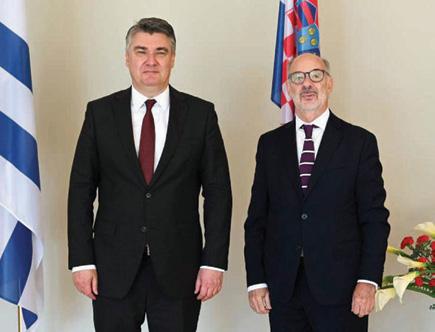
bassador of the Eastern Republic of Uruguay was accompanied by his wife Maria Jesús de Cores.
The President of the Republic of Croatia, also re ceived the credentials of the Ambassador of the Republic of Turkey. N. E. Yavuz Selim Kiran, Am bassador of the Republic of Turkey to the Republic of Croatia, based in Zagreb. The ambassador of the Republic of Turkey was accompanied by adviser Fatih Kaya and military attache Colonel Özcan Yetis during the presentation of credentials.
 dI ploma CY & C ommer C e pre S e NTS
F o CUS o N
dI ploma CY & C ommer C e pre S e NTS
F o CUS o N










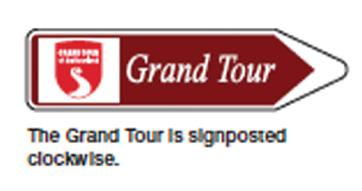

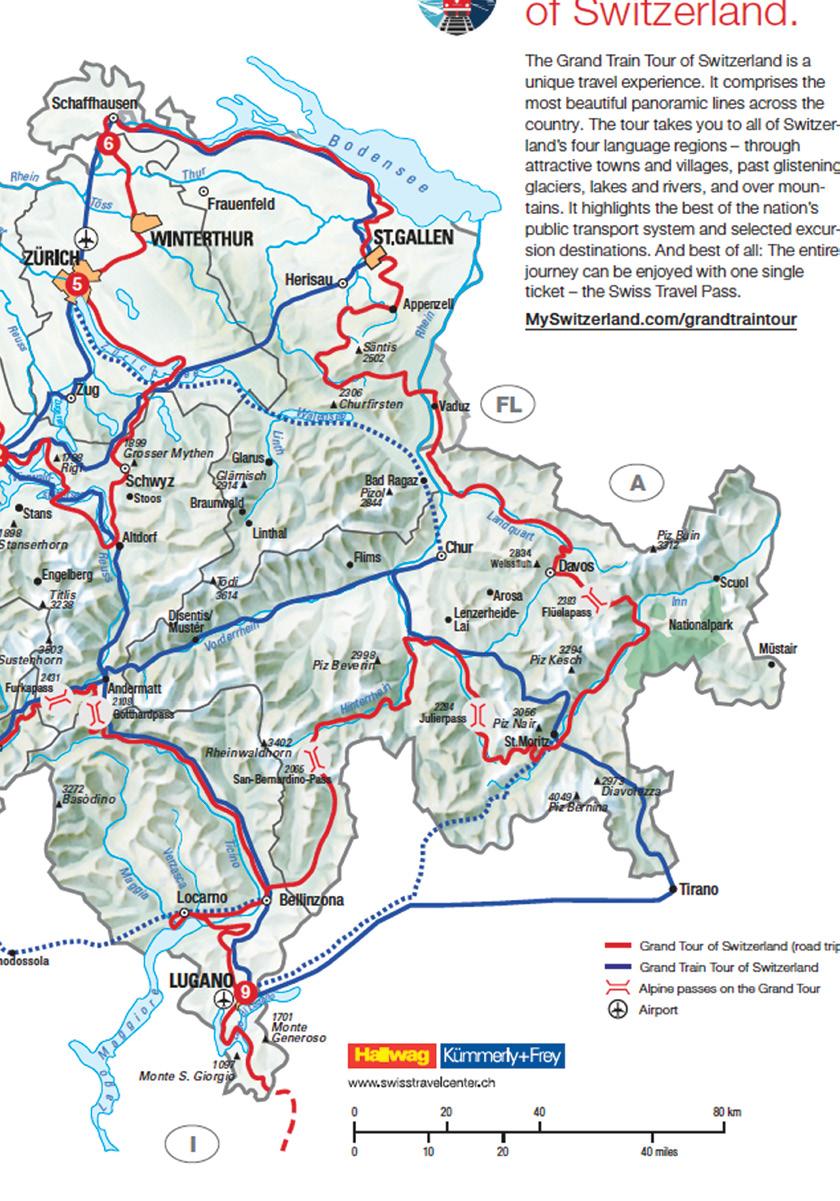







Croatia and Switzerland have a shared interest and commit ment in a stable and peaceful evolution of the region of the Western Balkans, says Ambassador of the Swiss Confederation to Croatia H.E. Hammer Urs for Diplomacy&Commerce, Focus on Switzerland. Croatia is a popular des tination for Swiss tourists. So far this year more than more that 250’000 visi tors from Switzerland have enjoyed their holidays in this fascinating coun try, says H.E. Hammer Urs.

You have only been in Croatia for a short time now. What are your first impressions? To what extent is Za greb similar to Swiss cities? What strikes you as different?
My first impressions are very heart ening and reassuring. Since our arrival two months ago, my wife and I were re peatedly overwhelmed by the big-heart edness of the population here in Zagreb. Many Croatian people we met have rela tives or other personal connections to my home country. The knowledge about Switzerland is deep and its reputation overall quite positive.
The past is very present in Zagreb. It is a crossroad of different cultures and plays, like Switzerland, the role of a fa cilitating mediator between North and South as well as between West and East. Zagreb is bigger than Zurich, the biggest Swiss city, and there is a potential for an increased cooperation between both cit ies in the areas of transport, science and infrastructure. Trams have a long tradi tion in Zagreb as well as in Zurich and other Swiss cities.
The bilateral relations between Switzerland and Croatia are very good. This is apparent in the economic sector, in politics and of course in tourism.
How do you assess the current and future bilateral relations between Switzerland and Croatia?
Over the last decades, Croatia has gone a long way in a short time and our rela tions have flourished accordingly. This year, we have been celebrating the 30th anniversary of our diplomatic relations with different manifestations in Croatia and in Switzerland. The recent visits of Croatia’s President Zoran Milanović in Ge neva on April 7th 2022 and of Foreign Min ister Gordan Grlić Radman last November in Bern underline the political importance of our relations. As Minister Grlić Radman has lived in Switzerland for many years, I am probably the only Swiss Ambassador worldwide who can communicate with the Foreign Minister of his host country not only in German, but in Swiss German!
In my first contacts with members of the Croatian Parliament, I noticed a mutual willingness to deepen our rela tions also on parliamentary level. There is a Croatian-Swiss Friendship Group in the Sabor and Irène Kälin, President of the Swiss National Council, the lower house of the Federal Assembly, invited the Speaker of the Croatian Parliament Gordan Jandroković to visit Switzerland while she recently attended the First Par liamentary Summit of the International Crimea Platform. Croatia and Switzer land have a shared interest and commit ment in a stable and peaceful evolution of the region of the Western Balkans. For the first time in its history, Switzerland will become a Non-permanent Member of the UN-Security Council in the period of 2023-24, thereby gaining valuable ex perience that it could share with Croatia.
You mention the good economic re lations. According to you, is there room improvement? Which sectors are of potential interest for Swiss in vestors/companies?
Around 60 Swiss companies are suc cessfully active in Croatia and generate several thousand jobs. We also have a Swiss-Croatian Business Association (www.scba.hr) which together with the Embassy is working on strengthening the economic ties. With a bilateral for eign trade of goods worth 664 Mio. CHF in 2021, Croatia is Switzerland’s second most important trade partner in the region. However, there is certainly po tential that can be further exploited. Pos sible sectors for an increased cooperation include the IT sector, gaming industry, railway and the green transition.
Progress has been made in improving the investment climate in Croatia. We also notice this in the increasing interest of the Swiss economy in doing business/ investing in Croatia. For Swiss investors, clear, stable and transparent framework conditions are crucial when making an investment decision.
What are the other priority fields of cooperation?
There is an important Croatian Com munity in Switzerland that has a leverage effect on our cultural cooperation. There is an important and hopefully increas ing Swiss attendance at the numerous cultural festivals in Croatia. Through the Swiss Contribution and other arrange ments, the cooperation between our countries in the areas of science and edu cation has been considerably expanded.
For the first time in its history, Switzerland will become a Nonpermanent member of the UN-Security Council in the period of 2023. - 24.
Through the so-called Swiss Con tribution Switzerland helps reduc ing economic and social dispari ties in the enlarged European Union. Recently you have signed a Frame work Agreement with the Croatian government on the second Swiss Contribution. What are lessons learned from the first programme and what projects will be imple mented within the second pro gramme?
On October 18, 2022 the Framework Agreement between Croatia and Swit zerland on the Implementation of the second Swiss Contribution to selected member states of the European Union to reduce economic and social disparities within the European Union was signed.
The projects that are in implementa tion until the end of 2024 have had an impact on tens of thousands of people whose lives are improved because the minefield near their home has been cleared, or their families have safe access to clean water. Within the projects, chil dren and youth were encouraged to take an active role in making their environ ment sustainable, while researchers had the opportunity to cooperate on innova tive projects. Moreover, young people received an education that meets the de mands of the market contributing to the competitiveness of the labour market.
We are satisfied to see, in addition to the project results, that Croatian partners value the exchange of knowledge and experience between our two countries as well as the results of the supported part nerships. The exchange contributed to the development of innovative solutions and to the strengthening of the capacities and structures of the Croatian institu tional partners.
The projects that will be implemented in the second Swiss Contribution in clude activities in the fields of research and innovation, water and waste water management in Gorski Kotar, palliative care and civic engagement. The priori ties were set out by Croatian national authorities, based on the needs of the Croatian society and the positive experi ence in implementing the first Swiss Contribution.
Switzerland is in the center of Eu rope but not part of the EU. How does this function and what are the main challenges?
Considering the powerful relations with its European neighborhood, it is crucial for Switzerland to have a focused and concerted policy in pursuing its in terests with respect to the EU. Therefore, Switzerland conducts its relations on the basis of bilateral sector agreements which regulate the procedures of coop eration in clearly defined areas. Since the Free Trade Agreement of 1972, the net work of agreements has continually de veloped, especially through the two con
tract packages of the bilateral agreements I (1999) and II (2004). These agreements provide both parties with extensive mar ket access and form the basis for close cooperation in such key policy areas as research, security, asylum, the environ ment and cultural affairs. This bilateral approach allows Switzerland to conduct a policy of openness and close coopera tion with all EU-Member States.
In May 2021 the Swiss government decided that it was not in a position to sign the Institutional framework agree ment with the EU. In February 2022, the Federal Council proposed to address the pending issues concerning overall SwissEU relations based on a broad packet of measures. This includes the institutional issues, which are to be anchored in each individual single market agreement us ing a vertical i.e. sectoral approach. So far, five rounds of exploratory talks have taken place between Switzerland and the EU with to goal to prepare formal nego tiations on this new package of bilateral relations.
Due to its system of semi-direct democracy, the majority of the Swiss electorate and cantons have to approve important decisions which constitutes a particular challenge in our European policy.
How do you see the current security situation in Europe? In the context of the war in Ukraine, questions have been raised about the Swiss neutrality. What is the Swiss position?
At the end of February 2022, Russia attacked Ukraine militarily. In doing so, Russia massively violated elementary norms of international law. Neutrality remained applicable even during the military intervention. The Federal Coun cil adopted entirely the EU sanctions against Russia based on a comprehensive assessment of interests. In doing so, it took into account the law of neutrality and neutrality policy as well as foreign policy and foreign economic aspects. The concept of neutrality has therefore not been abandoned, but adopted to the new circumstances.
In July 2022, Ukraine and Switzerland co-hosted the Ukraine Recovery Confer ence in Lugano to launch a broad-based political process for the recovery of Ukraine. Croatia’s Foreign Minister also attended.

The continued war, the raise of infla tion as well as uncertainties about energy supply are of major concern for Switzer land as for many other countries on the European continent.
What are your hobbies? What do you like to discover in Croatia?
As a keen fan of football, I admire the Croatian national team and hope that Switzerland will not have to encounter them at the World Cup before the final! I adore jazz and classical music and like to visit museums in general and art muse ums in particular, as my wife is a painter and sculptor. We both are keen to dis cover Croatia in its historical and natural richness and diversity.
The Frame work agree ment for the first Swiss Contribution was signed in 2015, and Croatia is still in the process of implemen tation of most of the projects contracted based on this agreement.
Sandoz’s global sales in 2021 reached the level of US$ 9.6 billion.
Sandoz operates pursuant to the highest quality requirements in accordance with Good Man ufacturing Practice and Good Distribu tion Practice, Ana Gongola, Member of the Management Board of Sandoz Cro atia, says for Diplomacy&Commerce, Focus on Switzerland. She also says that at the end of the summer of this year, the Novartis Board of Directors decided that it would be best for the strategic goals of Novartis and Sandoz for Sandoz to become an independent company.
Sandoz is a global leader in the seg ment of generic pharmaceutical products and biosimilar drugs, and part of Novartis Group. What are your main goals and what is your mission?
Today, even with all the challenges and difficulties, people have a longer life expectancy than ever before in history. As a result, extended life ex pectancy brings with it more diseases, especially chronic ones, and all of the above burdens the individual, society and health systems. Sandoz’s role in
all of the above is to provide access to high-quality and affordable medicines to as many patients as possible.
In short, this is our purpose - in creasing the availability of medicines.
Our global portfolio consists of ap proximately 1,000 molecules, cover ing a wide range of therapeutic areas. Sandoz’s global sales in 2021 reached the level of 9.6 billion USD. Our broad portfolio delivers significant and ongoing savings for patients and national health budgets, helping to ensure the sustainability of healthcare
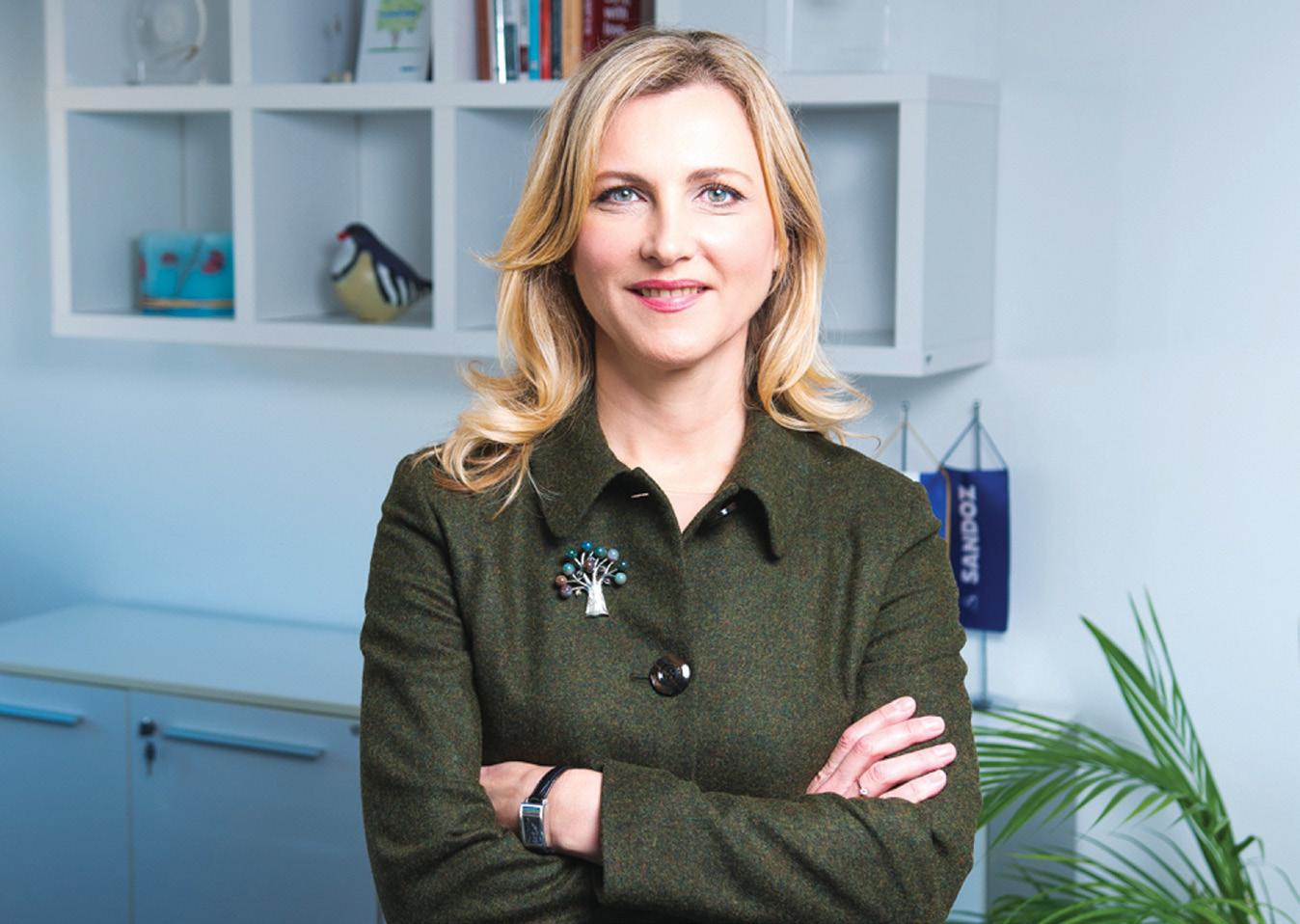
In addition to quality prod ucts, people are definitely the main driver of our com pany’s success
systems under significant budgetary pressures, while freeing up funds to invest in innovative drugs.
Our products have found their way to more than 500 million patients, and the main strength of our large portfolio is our position as a global leader in the segment of biosimilar drugs, standard generic drugs, overthe-counter drugs, as well as antibiot ics, which are also the foundation of health systems worldwide. We also implement a large number of targeted corporate responsibility programs aimed at increasing the availability of medicines and information in the field of medicine and the appropriate education of healthcare providers and patients.
Sandoz as a brand is a sign of qual ity. How difficult is it to maintain a level of quality these days and how do you achieve this?
In the pharmaceutical industry, which is a highly regulated industry, we are witnessing the constant growth of increasingly higher quality require ments from regulatory bodies, as well as from our partners.
Sandoz operates pursuant to the highest quality requirements in accord ance with Good Manufacturing Practice and Good Distribution Practice.
In such a challenging environment, lifelong education in specific areas and following all the global require ments are key to maintaining a high level of quality.
Each individual employee is re sponsible for quality in his area of work, and our expert Quality Assur ance Department provides support and supervises operations.
This is precisely why our employees are the key and our way of maintain ing a high level of quality in every thing we do.
What would you single out as most important of the plans for the com ing period and in which direction these plans will be realized?
Two major challenges await us in the coming period. The first is a com mon challenge for the entire generic industry, which is to ensure a continu ous supply of drugs in this particular time of rising costs and inflation. We have good mechanisms in Europe that are designed to reduce the price of drugs so that more patients can be treated for a fraction of the cost and to open the door to innovation. It worked great for the last 40 years or so, but now that we are faced with an unprec edented energy crisis and inflation, the production of a whole range of medicines is questionable. The prices of drugs are low, and the prices of pro duction and transport have increased many times. This leads to a challeng
ing situation where market prices no longer cover production costs, and we will urgently need to agree on new models that will enable the indexation of prices of generic drugs to ensure the continuity of production and supply.
The second challenge is, in fact, the unique opportunity that has presented itself before Sandoz, which is the fact that by this time next year, Sandoz will be an independent company. Namely, at the end of the summer of this year, the Board of Directors of Novartis de cided that it was best for the strategic goals of Novartis and Sandoz for San doz to become an independent com pany. This is an extremely exciting opportunity for all Sandoz employees. It is very rare in our careers that we have the opportunity to participate in something like this. I look forward to being able to fully commit to our mis sion, bringing as many high-quality generic drugs as possible to as many patients as possible, and being able to serve patients in the best way possible.
How would you rate cooperation with decision makers? Where do you see problems in terms of bu reaucracy?
Sandoz is an active member in the Croatian Employers’ Association, es pecially in the branch association of pharmaceutical manufacturers. We are also members of the American Chamber of Commerce, so there we have the opportunity to discuss key topics for the industry. As a rule, our cooperation with decision makers in Croatia takes place through these as sociations. This cooperation is some times really constructive and some proposals and improvements that we advocated as an industry were under stood and appreciated, to the benefit of all stakeholders of the healthcare system. For some topics, unfortunate ly, there is not always as much atten tion and interest as we think would be necessary.
When we, as an industry, warn about the rising costs of producing a large number of generic drugs and the exponential growth of input costs - raw materials, energy, then packag ing and transportation - it is neces sary that we have informed, open and interested interlocutors on the other side who understand that the existing regulation of drug pricing which fore sees only a constant reduction in the prices of prescription drugs does not support and does not reflect the reality we are currently in. Medicines such as antibiotics have extremely low prices, and their production consumes a lot of energy, the price of which is only increasing. It is not sustainable in the long term for the cost of production to rise exponentially while at the same time regulations dictate that the price
must constantly fall. Such a pricing model needs to be changed urgently so that we do not have to face short ages of medicines such as antibiotics - which we are all used to and take for granted.
In conclusion - it is important for us as an industry to have interlocu tors on the other side of the table who are willing and able to understand the bigger picture of drug production, the challenges we face, the benefits we bring to society and to the patients. As long as there is open cooperation and dialogue, there is always the possibil ity of finding a solution.
In addition to the quality of your products, your employees also rep resent your success. How do you motivate your employees to feel even better?
In addition to quality products, people are definitely the main driver of our company’s success. We are aware that only with motivated and engaged employees can we maintain a leadership position on the market. We motivate people in several ways. To begin with, it includes a clear communication of goals so that eve ryone has the same understanding in which direction we are going to gether. When their goals are known, people must know what their purpose is in achieving these goals and how they contribute to their achievement. Also, you have to give them respon sibility and believe in them that they will achieve these goals. I think that, in general, the possibility to specifi cally influence the quality of some one’s life and health outcome, while at the same time being affordable and accessible, is what motivates us and our employees.
Sandoz Croatia pays great attention to social responsibility. How and through what campaigns?
Make the world a better place is Sandoz’s main philosophy. Bearing this in mind, we work hard to ensure safe practices and operations when it comes to our people and the commu nity in which we live and work.
Sandoz is always actively work ing to find new ways to help patients around the world have access to highquality medicines, but it is also par ticipating in very specific educational projects, in Croatia, for example, for the last few years we have been work ing very intensively on the project that promotes health literacy of patients and the general population. Also, San doz Croatia has on several occasions donated significant amounts for the fight against the coronavirus pan demic, for the victims of the Petrinja earthquake and for refugees from Ukraine.
The prices of medicines are low, and the prices of production and transport have increased many times. This leads to a challenging situation where market prices no longer cover production costs
Actually, there is an old Serbian proverb that goes: „Who cares that Hungary doesn't have a sea?“ which is somewhat untrue becuse Hungary did have access to the sea up until 1918, unlike Switzerland which never did. However, that did not stop the Swiss from becoming a tourist superpower

It's all about the bra nd, and a lit tle bit about organization, but mostly about the British. At least that's how it was in the 19th century. The British did it first just like in many other countries around the world. It all started with a railroad too, on a somewhat grander scale. The tourism in Switzer land begins with British mountaineers climbing the main peaks of the Bernese Alps in the early 19th century (Jungfrau 1811, Finsteraarhorn 1812). We should also not forget the romantic era, promot ed by Byron and Shelley, his Mary and their Frankenstein. The Alpine Club in London was founded in 1857. Recovery in the Alpine climate, in particular from Tu berculosis, was another important branch of tourism in the 19th and early 20th century, especially in Davos,
Graubünden. Since the Bernese Alps were very popular with British moun taineers, the Bernese Oberland was long known as a tourist destination. Meirin gen's Reichenbach Falls achieved literary fame as the site of the fictional death of Sir Arthur Conan Doyle's Sherlock Hol mes (1893). You can only imagine what happened with Reichenback after that, and how many British tourists visited it, travelling by train resembling the very Orient Express in which the murder took place, carrying huge suitcases, sitting pa tiently for days in private dining rooms, and sleeping in comfortable train cars just to reach the breathtakingly beautiful mountains. Thomas Cook and Lunn Travel were the first travel agents to offer holidaying in Switzerland in the 19th century.
So, what is the current situation like? Apart from pretty towns, ski ing, mountains and the countryside, what else Switzerland has on offer? It is interesting to note that the num ber of visitors from Europe has been declining. In relation to 2007, there were 40% fewer Germans, 28% Brit ons, 41% Dutch, 24% Russians, and 11% fewer French tourists this year. Is the strong Swiss Franc to blame? Of course it is. The sanctions towards Russia? Of course they are. The global economic crisis? Definitely! But let's have a peak at another list – there were 401% more Chinese tourists, 81% more Indians, 105% South Koreans, 7% Americans, 134% Thai, 151% Hong Kongers, 160% Taiwanese, 125% Sin gaporeans, 45% Brazilians, and 250% more Indonesians coming to Switzer land. The world is now focusing on Asia and Third World countries, and whoever manages to attract tourists

The west got to know switzerland pretty well, it's now everybody else's turn
Sea?
from these countries wins in the long run. One thing is for sure – the declin ing numbers have nothing to do with Switzerland's image. The cliché of a stable, idyllic and beautiful country still remains, and visiting Switzerland is on the bucket list for many people. Swissinfo.ch claims that Simon An holt, tourism consultant to various governments, has developed a system that measures national reputation. He confirms that the Swiss reputa tion is still excellent worldwide with the country occupying the respect able 8th place in the global country ranking in the last decade or so. Such rankings are a weak consolation for Swiss hotel owners and winter resorts. Although tourism numbers are rising worldwide, Switzerland is struggling to attract the masses. According to the UN World Tourism Organization (UNWTO), the number of visitors from abroad stagnated in the period 2013-2015, while income fell by 7%.
Another, albeit minimal, decline fol lowed in 2016. In addition, the winter sports resorts were plagued by the unstable weather last season. The World Economic Forum (WEF) ranked Switzerland 6th in its annual report on tourism competitiveness.




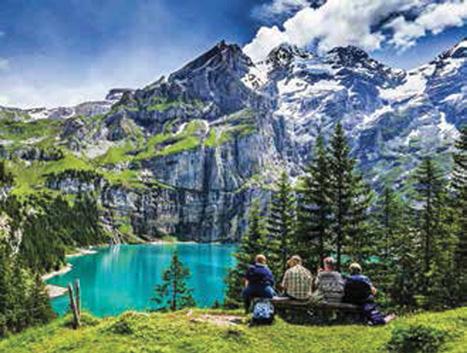
Still, we should not forget that Switzerland is “almost perfect”. This is the country where the stuffs of our dreams are made of. This is the coun try that we watched on TV as chil dren. Remember Heidi? James Bond
battled villains while skiing in Saint Moritz. The Alps make two thirds of the Swiss territory, and you’ll see for yourself that this country has one of the most beautiful countrysides in the world, especially if you take a mountain train. Skiing, mountaineer ing and hiking are a must. The Swiss towns might be considered expensive compared to the picturesque Portu guese towns, but they definitely bring back that familiar feeling of ease from your childhood. The West got to know Switzerland pretty well, it's now eve rybody else's turn.
The cliché of a stable, idyllic and beautiful country still remains, while visiting switzerland is on the bucket list for many people
With the adoption of the new Act on Copyright and Related Rights in 2021, the Croatian legal regulation of copyright has been modernized and adapted to the digital society and harmonized with the latest legislation of the European Union.
Petar PetrIć Attorney at Law, Petrić & Kajić Law Firm LLCSignificant novelties have been introduced in the part that refers to work of au thorship created in the employ ment relationship.
Until the adoption of the new law, the majority of employers did not regulate the issues of copyright over copyright works created under employment with an employment contract or other act, and a similar situation existed in the state and public service.
Legal uncertainty in practice was created due to the fact that the em ployer could not present himself to third parties as the holder of the right to exploit works created in the employment relationship, unless it was agreed otherwise.
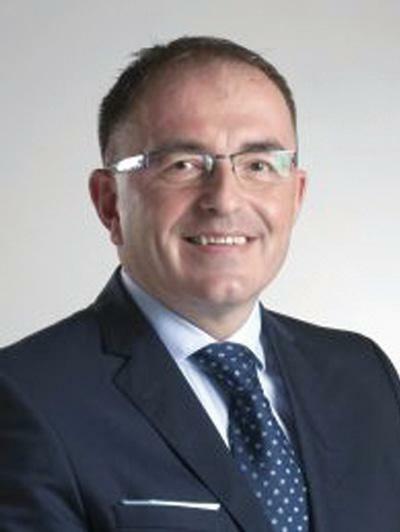
Thus, a work of authorship cre ated under employment is defined as a work created by the author dur ing the employment relationship with a certain employer, fulfilling his obligations under the employ ment contract.
According to the new legisla tion, it is considered that, if the employment contract or other act or contract between the author and the employer does not stipulate otherwise, that the employer has acquired the exclusive copyright property rights to exploit the au thor’s work created under employ ment, in the content and scope that is necessary for the realization of the activity performed, without space and time limitations, regard less of the termination of employ ment relationship during which the work was created.
It is also considered that the em
ployer has received the author’s ap proval that the work created under employment can be publicly pub lished, processed and translated and used as such, as well as that he can present the work to the public under the name of the employer, together with the author’s name, if this is possible considering the way of use and if not otherwise agreed with the author of the work.
It shall be considered that the employer has received the author’s approval to complete his unfinished work created under employment, if the author’s employment ends before the completion of the work, as well as in the case where it can be reasonably considered that the au thor will not be able to complete the work himself in an orderly and time ly manner in accordance with the employer’s needs, unless otherwise agreed with the author of the work.
The aforementioned legal provi sions also apply to all elements of
the performance of his obligations under the employment contract, the employer has all the exclu sive rights to use that computer program without content, time and space limitations, unless the employment contract stipulates otherwise.
For Work oF authorshiP
The right to compensation for the creation of work of authorship under employment and its utiliza tion is realized by receiving a salary.
If, however, the use of the work of authorship created in the employment relationship had a significant contribution to the increase of income or profit or to the improvement of the employer’s activity, the author has the right to a special compensation in an ap propriate amount.
This compensation must be proportional to the contribution
Works of authorship of persons in management positions in legal entities - in practice, the question of the status of the members of em ployer’s administrative bodies has arisen, if they appear as the authors of works they create as members of administrative bodies.
Membership in the management of a commercial company does not have to be exclusively governed by an employment contract. Of ten, this status of a member of the Management Board of a trading company is regulated by a special management contract, and such a member of the management does not have to be employed but in a special contractual relationship with the trading company.
All legal provisions are appro priately applied to works of author ship created by a member of the administrative or supervisory body of a trading company or a person performing another appropriate management function in a trading company in fulfillment of their obli gations towards the trading compa ny. In such a case, the trading com pany is considered the employer.
The above shows that provisions of the new law compared to ear lier legal provisions introduced a change in favour of employers.
an architectural work, which in clude sketches, studies, plastic and other representations, blueprints, conceptual solutions, conceptual projects, main projects, detailed design, plans, interventions in space from the fields of architec ture, urbanism and landscape ar chitecture.
When it comes to a computer program created by an employee in
that his work of authorship had to the increase of income or profit or to the improvement in the perfor mance of employer’s activities, if this is stipulated in the employ ment contract, labor regulations, collective agreement or other act regulating the employment rela tionship or in another contract concluded between the author and the employer.
According to the new legal solution, the employer acquires exclusive copyright to exploit the work of authorship, unless otherwise prescribed by the em ployment contract or other act, while according to the previous law, in order to acquire the right to use the content of the work of authorship, the employer needed a special contractual clause as the basis for acquiring the right to use the work of authorship.
Great news for all buyers and lovers of Audi quality!
From 01.09.2022. sales started with a 6-year warranty is being introduced for all new Audi models delivered through the authorized network, which gives custom ers another year of peace of mind compared to the previous 5-year extended warranty.
Given that the 6-year warranty has no exclu sions and “fine print” and customers retain all rights from the two-year factory warranty without surcharge, it is certainly a novelty that provides customers with significant conveni ence, security and trust in the brand.
With this, Audi definitely takes over the po sition of the brand with the best warranty offer in the premium segment. We are introducing this important additional benefit motivated by the desire to provide our customers with a premium shopping experience, maximum se curity and confirmation of the long-standing slogan “Progress through technology”.
In more detail, this means that the Audi dealer network in Croatia has extended the previous two years of the factory warranty for another four years, in which the cus

tomer retains all warranty rights without ad ditional charges. The Audi warranty is valid for 6 years or up to 150,000 km, whichever comes first, with no mileage limit for the
first two years. This applies to all new Audi vehicles purchased and delivered through the authorized Audi network in Croatia after September 1, 2022.

The program, i.e. the reper toire of the Croatian Na tional Theater in Zagreb in Drama, Opera and Ballet must be balanced in such a way as to pay at tention to the share of classical (socalled chamber repertoire) and contemporary expressions, Mrs Iva Hraste Sočo, Director of the Croa tian National Theater in Zagreb, tells Diplomacy&Commerce. She announced the investment in en sembles and the relief of the scene, which will facilitate the work of the employees.

As a woman with a rich ca reer and experience in the field of art, what does the job of in tendant of the most important cultural institution in the coun try mean to you? What will you focus on in your work?
The position of the intendant of the greatest theatre institution in Croatia is a responsible job, first of all. Bearing in mind the great artists who performed this duty, I con sider it a great honour to be given the opportunity to take this job. My previous experience as an opera soloist who matured artistically at the HNK Opera in Zagreb, then that of a scientist and diplomat, and the management references I gained as an assistant to the Minister of Cul ture will help me in managing this theatre company.
What are you guided by when making decisions, prepar ing programs, dealing with fi nances?
You have listed various areas and tasks that an intendant must
This year, a record number of subscriptions were sold in the last few years - almost 5,000
perform, of course in cooperation with his closest colleagues. The program, i.e. the repertoire of the Croatian National Theater in Zagreb in Drama, Opera and Ballet must be balanced in such a way as to pay attention to the share of classical (so-called chamber repertoire) and contemporary expressions. Also, the program follows a financial as well as a staffing plan, which must be re alistic, but also ambitious, in order to follow the mission of the HNK in Zagreb, but also to build on the vi sion of a modern European theatre.
What are you offering to us this year in the repertoire in all the segments of HNK, drama, opera and ballet?
As I mentioned just now, in this season, which we opened with a festive Opera gala concert with the

celebrated opera star Piotr Beczal, we will see canonical works in all three artistic entities, for example an opera such as Verdi’s “Nabucco”, the operetta “The Flittermouse”, the world classic “Don Juan” by Moliere and the Croatian classic “Leda” by M. Krleža, but also the great ballet staging of “Spartacus” by A. Khačaturjan or “Peer Gynt” by E. Grieg. We are grateful to our loyal audience, as well as to our new sub scribers, for recognizing the quality of our program because we have achieved a record number of sold subscriptions in the last few years, almost 5,000.
What are the novelties that we can expect in the current sea son?
We will try to fill ensembles that are great with young artists, which
we already did at the Opera in Octo ber, and through the interaction of Croatian artists with foreign stars we will achieve relevance in terms of performance, which we hope will attract the audience. Among the new programs, we will stage Opera for Babies, the Zagreb Opera Festival, the program and subscrip tion of Theatre for the Family, the HNK’s Film Vault, etc.
What do you see as the big gest challenges in the business operations and functioning of HNK?
The greatest challenge is certainly the fact that HNK has around 500 employees in Zagreb and the intendant and his associ ates must ensure a favourable working climate as a predisposi tion for creating superb works of art. Furthermore, a big challenge is the construction of a new stage in Adžija Street, where the workshops and warehouses of the Croatian National Theater in Zagreb are lo cated, after which the theater will organizationally “breathe”, because it is very challenging to perform the repertoire of Opera, Drama and Ballet on one stage, which is the case now.
HNK also cooperates with oth er theatres in Europe. How and through which projects?
Zagreb is a Central European capital and is naturally focused on cooperation with similar theat ers in the surrounding area and beyond. Cooperation takes place through co-production projects, guest appearances and exchanges, as well as international associa tions in which HNK in Zagreb par ticipates.
Iva HrasteTHe reperToIre IN drama, opera aNd balleT mUST be balaNCed IN SUCH a waY aS To paY aTTeNTIoN To THe SHare oF ClaSSICal aNd CoNTemporarY expreSSIoNS
The fact that every tenth woman in Croatia is diagnosed with breast cancer is a sufficient indicator that this illness is more than present in our society and that it doesn’t happen to “someone else”.

to such a sensitive and important topic. Some times we think that we don’t always have time to think about health, about ourselves... and that nothing will happen to us, even though we live in an intense daily pace of stress, obliga tions and unhealthy habits. But do you think that illness, or difficult moments, know what month of the year it is? They come suddenly and unexpectedly, and often when we are least ready for them. That’s why, with rosy thoughts in mind, it is necessary to be aware of the im portance of self-love every month of the year - and one of the ways to show that care is to take care of your own health. Ignoring the first signs and reacting too late is a big risk. Increas ingly aware of the need to communicate to the public about this topic, GRAWE Croatia, as an insurance company that manages numerous risks, is one of the leading participants in pro moting the importance of preventive exami nations. As a socially responsible company, it helps those affected by the disease and who need additional support through numerous ac tivities. Through projects and donations, this year GRAWE cooperated with two important associations in this but also supporting the initiative Bradata aukcija.
start your c hange make an aPPointment and colour the negative statistics Brighter colors
I t is possible even more than we think that we can feel this on our own skin or, unfortunately, that a loved one can get sick. Even though we should always pay great attention to this topic because of that, the truth is that we still don’t talk about it, and some times we don’t even think about it enough. This is understandable, no one likes to think about a terrible disease and all the diffi culties associated with it. But our health should always come first, and our decisions towards that goal should be timely. “Pink October” is an ideal time for a new perspective and an em phasis on your own health. We can easily find a new source of motivation in the pink ribbon motive to take an important step towards life changes, because good decisions can lead us towards reducing the negative statistics that include more than 800 women annually. In this time of a year, we fight together against this cruel disease - although we cannot prevent cancer from happening, what we can all do is detect it in time, with a timely preventive ex amination, which is the first and biggest step towards healing! The most important thing is to know that, if found in time, the percentage of a chance of cure is promisingly high - as much as 90% in women suffering from breast cancer and as much as 98 % in men suffering from prostate cancer.
But, is one month a year truly enough For major changes?

One read page of a book cannot show us the real plot of the story. One trip to the gym can not change our physical appearance. One bad day of the week does not make the whole week bad. Equally, one month a year can help and represent that first step, but it is not enough to make big changes, especially when it comes
In addition to public communication and cooperation, GRAWE Croatia, as an insurance company, supports the fight against breast and prostate cancer in another way through the existing additional health insurance policy - additional breast or prostate shortens long waiting lists, so it is even easier to respond to a preventive breast and prostate ultrasound without further delay . The GRAWE Vital policy offers more benefits, and you can read about the rest at https://www.grawe.hr/dodatnozdravstveno-osiguranje/ and change the direction in which the statistics are going!


That word accompanies us even today in practice. It appears not only in politi cal campaigns and processes of the war situation of the Ukrainian war, which, due to the diversity of in terest groups, led to the energy cri sis, and attempts to destabilize the European Union, but ‘fake news’ appears within the micro-commu nity, starting with communication in small towns, traces and all with in different groups of business in terests.
Behind fake news, the second keyword that connects what I am writing about is gossip, i.e. ‘ru mors’, so intentionally and with the aim of damaging the reputation of a product or brand, a competitor or a person pretending to have a func tion within the system will start or create fake news or simply by retelling the information from the source or the first transfer or of the will to the last recipient depends on the news or the topic, in the end, the correct information may be come incorrect or distorted.
Today, when we talk about com munications and communica tion processes, it depends on the standard of democracy regardless of transparency and political inter ests, we can say that there are few countries where there is still inde pendent journalism that is closely related to investigative journalism.
In our region, communication processes in relations with the media and topics, whether we are talking about public administra tion or corporate communication, are simply part of the mechanism of some paid articles and those topics of interest that are closely related to marketing with the goal of sales or self-promotion to praise certain work of a certain city or individual find their place within this type of communication cam paign.
It is difficult today, in the era of digital communication, digital news if it is fake news, to get the same amount of denial if a corpora
tion or a company that belongs to the category of small and medium enterprises or start-ups wants to refute that text or news. In practice, this would mean that for example, we have news that Spanish manda rins from the manufacturer “Zoom mandarins”, are contaminated due to a large number of pesticides, and in fact, this news was placed by a competing company that also markets mandarins on the market where the news was placed, every one will believe it first. that the first “fake news” is true. Due to its repu
tation and consumer protection, the competent agency, institution, and inspection will react to this, and until it is proven whether these mandarins are really damaged by pesticides or not, enough influence for “zoom mandarins” to lose their market share and instead of doing business, acquisition and sale deal with proving the truth.
This is just an example. Try to transfer this example to gossip and fake news within the political pub lic and the elite, when without any ethics and morals and the question
of truth or falsehood, various ac tions and actions of members of the political public are suspected. So often you will hear very bad epithets towards the political com munity and the individuals who lead the European Union. Despite the transparency, and communica tion of the European Union, the lack of time of citizens and indi viduals, and even the impossibility of checking internations, people will draw certain wrong conclu sions without asking whether it is true, and more importantly, they will comment on individuals and persons they have never had the opportunity to meet.
In this case, we are talking about the creation of public opin ion, and throughout history, we have witnessed that through the machinery of business interests and profits, war conflicts were cre ated, and state presidents changed, which is still happening today because we all belong to a certain group of people in the mystery of life. For some, we are just statis tics. For some, a key factor in life. For some victims, and for some winners. Believe the news or not, today it is quite clear that in digi tal communications more than ever interest groups are clear and closed. The younger generations, and we are talking about millions, are not interested in their rights or their obligations as citizens in the majority. Depending on which part of the planet they live on, they are connected by very light topics that are in the global focus of commu nication values, cosmetics, music, and funny videos. Communication creates closed worlds far from the political public, its powers, and control of actions.
It will be interesting to watch when ‘fake news’ will be present in the world of cryptocurrencies, in the world of the metaverse. On the one hand, through certain communication messages, cryptocurrencies were also damaged, and in the metaverse, everything is still focused only on good sales, on individualism, far from ‘fake news’.
A few years ago, one of the keywords became “fake news”. we
Launched in 1909, Chivas Regal is the world’s first luxury whisky and is considered to be a timeless classic, renowned for style, substance and exclusivity.


This story begins in 1836 with two brothers named James and John Chivas. The broth ers were two of fourteen children born to Robert & Christian Chivas, living on the remote Strathythan farm in the Ellon Parish of Aberdeen shire. At 26 and 22 years old respectively, James and his younger brother John decided it was time to follow their dreams and leave farm life in search of bigger and better opportunities. They left the small crowded Strathythan farm in search of the bright ‘northern’ lights of Old Aberdeen.
At this time there were no train-lines or stagecoach routes across Aberdeenshire, so the young brothers trekked for several days across 20 miles of Scottish countryside to the Granite City. Aber deen at this time was a city typifying the period of industrial revolution, booming with new people, industries, exotic goods and most importantly new ideas. One of these new ideas was the blending of grain and malt whisky, referred to today as Blended Whisky. Blended Whisky is defined by the Scottish Whisky Association as, ‘A blend of one or more Sin gle Malt Scotch Whiskies with one or more Single Grain Scotch Whiskies.’ The core concept of blend ing is to create something better than the sum of its parts by harmonizing the complex flavors of the malt and grain whisky, bringing them together and creating a new and superior character.
Arriving in Aberdeen, John began working at a wholesale firm while his older brother James worked in a grocery store, where he later part nered with a gentleman named Charles Stewart. This was no ordinary store however – established
For over 170 YearS broTHerHood, geNeroSITY, eNTrepreNeUrSHIp, aNd INTegrITY Have – aNd CoNTINUe To be – aT HearT oF CHIvaS regal.
in 1801 it soon gained a reputation of supplying the finest goods, provisions and highest quality whisky to the gentry of Scotland. If you wanted real craftsmanship and goods of the highest qual ity, this was your one stop shop. This recognition of the reputation and quality of the business soon extended from the gentry of Scotland to Queen
Victoria herself, who awarded James and Charles the first of many royal warrants to supply goods and provisions to her royal summer home, Bal moral Castle.
Since joining the Aberdeen grocery store James had learned and mastered the craft of tea blend ing. The skills James learnt during this time, coupled with his years of training both his nose and pallet, provided him with superior skill in the blending of whiskies. Now inspired by his royal patronage, James Chivas began pioneering the art of blending whiskies, using the many ageing casks laid down in the shops cellars. He created what we consider today to be the Chivas house style – blending whiskies in a style encompassing smoothness, richness and harmony of flavour. Charles Stewart left the partnership in 1857 and soon after John joined his brother James at the shop, forming the Chivas Brothers family busi ness. Two years later ‘The 1860 Spirits Act’ per mitted the blending of whiskies in warehouses. This confirmed both the Art of Blending as an established technique and Blended Whisky as a category of whisky in its own right. As a result, the demand for Chivas Brothers’ smooth, rich and harmonious style whisky boomed.
When James Chivas died in 1886 the store was passed to his son Alexander Chivas (John having also passed in 1862) who continued to expand the busi ness, assisted by his good friend Alexander Smith. Following the death of Alexander Chivas in 1893, Chi vas Brothers was then taken over by Alexander Smith and its new Master Blender Charles Howard.
By 1909, Chivas Brothers had developed a wide reputation for producing luxury goods, which they shipped around the world. The Chivas Broth ers had extensive knowledge and expertise on the aging and blending of whiskies and built up extensive stocks of maturing whisky. Follow ing several successful releases across the globe Charles Howard, Chivas Brothers’ Master Blender at the time, wanted to create a new blend that payed tribute to the legacy of the founding broth ers, James and John.
Using the name Chivas Regal, Charles created what he believed to be the finest whisky ever made, releasing a 25 year old whisky in 1909. This met the regulatory requirements for bottling and labeling, a feat that hadn’t been accomplished by any other companies or brands at the time, estab lishing it as the world’s first luxury whisky. The Chivas house style has been passed down by gen erations of Master Blenders, and is still carefully guarded today by Colin Scott, Chivas Regal’s fifth Master Blender.
Today, the Chivas Regal range now includes Chi vas 12, Chivas 18, Chivas 25 and the Global Travel Retail exclusive, Chivas Brothers Blend. In October 2014, Chivas Regal announced the addition of a fifth permanent expression in the Chivas Regal family, Chivas Regal Extra, sitting within the superpremium range, positioned between Chivas 12 and Chivas 18. In February 2016, Colin Scott presented Chivas Regal The Icon (RRP: 3.000 EUR), a perfectly balanced expression that showcases the depth and complexity of his craftsmanship and knowledge, echoing the pioneering James and John Chivas. Chivas Regal The Icon is an ultra prestige blended whisky created with a blend of some of the rarest and oldest whiskies available to Chivas Regal, some from distilleries now lost forever.
Sláinte (Cheers)!


The famous Opatija Riviera, the most popu lar winter destination on the Adriatic coast, is slowly entering the most festive period of the year, dressing its lavish holiday attire and alluring its guests from all parts of the world!
Mild winter climate, lush green parks and promenades decorated with hundreds of thou sands of lights and Christmas decorations, ice rink by the sea and spectacular programs and events provide an unforgettable experience of a one-of-a-kind holiday magic, perfect for a relax ing winter holiday or an exciting celebration of the holidays and the New Year in the company of our loved ones.
Elegant contemporary design and modern architecture perfectly blended with the luxuriant Mediterranean environment, 16 ultra-luxurious rooms and suites, a wide range of offers and fa cilities, as well as outstanding service and a rich calendar of events, make this boutique resort located in the small town of Ika near Opatija, a favorite winter destination for a relaxing spa & gourmet vacation.
The Ikador hotel is open all winter and offers its guests a whole range of special offers, as well as specialized spa, yoga and hiking programs, and also numerous experience programs with private excursions such as truffle hunting, visits to winer
THe moST CorporaT e
lUxUrIoUS adveNT IN opaTIJa, awarded wITH THe preSTIgIoUS award For THe beST CHrISTmaS lIgHTS IN eUrope IN 2021, IS opeNINg ITS doorS oN November 25, 2022 aNd wIll laST UNTIl JaNUarY 08, 2023, aNd THe moST lUxUrIoUS HoTel oN THe adrIaTIC CoaST, THe IKador lUxUrY boUTIqUe HoTel & Spa 5*, wIll TaKe Care For THe perFeCT HolIdaY IN aN oaSIS oF UNCompromISINg lUxUrY aNd UlTImaTe STYle, bY opeNINg THe doorS oF ITS owN wINTer FaIrY Tale!

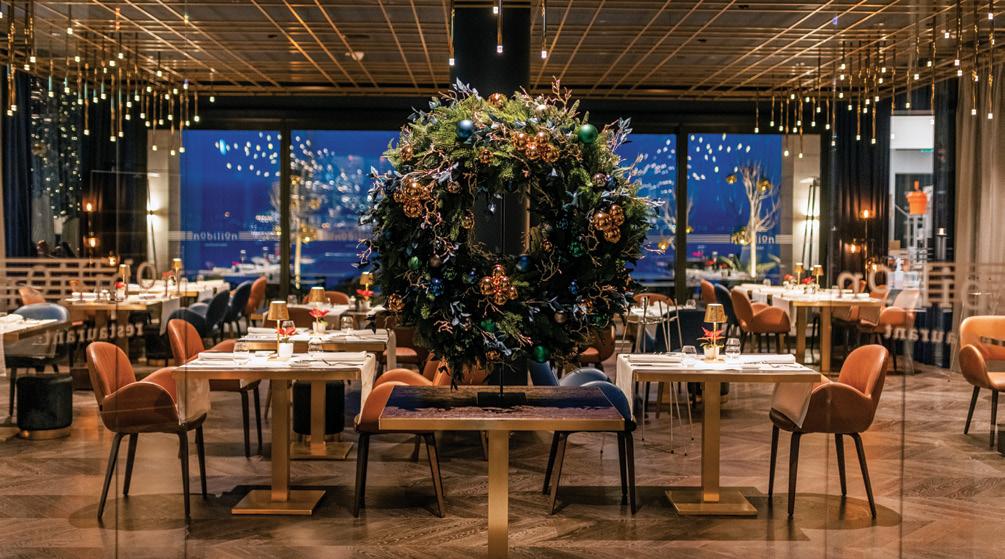

ies and OPGs of Istria, tasting of autochthonous products, exploration of the Opatija Riviera and its legends, all with private transport and a private guide! The entire third floor of the Ikador Hotel is dedicated to relaxing rituals of Ikalia Spa Centre, offering many spa treatments and programs based on natural ingredients, providing hotel guests and visitors an ideal sanctuary for a perfect wellness experience, with numerous winter packages and special offers. Ikador’s restaurant, the Nobilion, awarded with the prestigious Best Gourmet Expe rience Award in Croatia in 2022, will become an epicenter of gourmet events on the Riviera this winter, providing its guests with many gourmet

We will not get tired in our support for Ukraine
oct
This was the message of participants in the First Parliamentary Summit of the International Crimea Platform that was held in Zagreb on October 25 co-hosted by Ukraine and Croatia. The meeting was attended by participants from more than 50 countries and five international integrations, and the organiz ers point out that all members of the group of industrialized countries of the world - G7, were among the participants.


The Declaration confirms the commitment of participating countries to continue to provide political, financial, diplomatic, humanitarian and other forms of support to Ukraine to enable it to reestablish its territorial integrity. Conclu sions from the inaugural summit of the Crimea Platform were also confirmed, where they ex pressed commitment to defend the sovereignty and territorial integrity of Ukraine and to defend the international legal order, and where the ille gal annexation of the occupied parts of Ukraine was condemned.
The event was hosted by the Speaker of the Croatian Parliament Gordan Jandroković and Chairman of the Ukrainian Verkhovna Rada Ruslan Stefanchuk.
“This is a clear message for representatives of the Russian Federation – the aggressor – that the civilized democratic world will not get tired of supporting Ukraine and that we will be by their side until they free the last centimeter of their territory. We demonstrated solidarity with the Ukrainian people and we are willing to persevere
THe deClaraTIoN CoNFIrmS THe CommITmeNT oF parTICIpaTINg CoUNTrIeS To CoNTINUe To provIde polITICal, FINaNCIal, dIplomaTIC, HUmaNITarIaN aNd oTHer FormS oF SUpporT To UKraINe To eNable IT To reeSTablISH ITS TerrITorIal INTegrITY
25 Zagreb, croatIan ParlIament, natIonal and UnIversIty lIbrary Participants of the Crimean Platformuntil the end,” said Jandroković. He reminded that this was a summit of parliament representa tives, those who were elected by the citizens and who have the mandate to ask their governments not to change their politics towards Ukraine.
According to the estimate of the Chairman of the Ukrainian Verkhovna Rada Ruslan Ste fanchuk, the summit was one of a kind, not because there was so much talk about Ukraine, but because all the participants have concluded – when it comes to Ukraine – that they are all on the same side. And when it comes to those who – as he said – are on the other side of civilization and history, he said: “Look at us – this is support and friendship, this is civilization and peace. Ukraine will survive and Ukraine will succeed”.

Ukrainian President Volodimir Zelenski also addressed the summit via video link from Kiev.

“Russia claims that Crimea is theirs since 2014, but we are here now to show that what has happened in Crimea is temporary, it is an occu pation,” he said.
Only when Crimea is liberated, the world will feel safe and that the war is over. We need three things in these difficult times: military support, financial support and sanctions. I urge you to do this, as hard as possible, this is the foundation for the future peace,” Ukrainian President sent this appeal.
Speaker of the US House of Representatives Nancy Pelosi said that the Russian attack on Ukraine is an attack on democracy itself.
“Unprovoked attacks, brutal attacks, persecu tions… It is a campaign of intimidation, soldiers are killing people on the road, killing civilians, Putin is attacking energy plants so that Ukrain ians will be without electricity, we are talking about rapes, child abductions, this is not hu mane behavior. Destroying energy facilities is a war crime, these are all war crimes committed by Putin. All of us here are with Ukraine, con demning the annexation of Crimea, we will be with Ukraine until it wins the war,» Pelosi an nounced. She emphasized that «it is extremely important that strong sanctions against Russia remain, to suspend normal trade relations. De mocracy itself is at stake here. Ukraine is fight ing for all of us, for our democracy. President (USA, Joe) Biden said that we will stand with Ukraine until the end,» Pelosi reminded.

Croatian PM Andrej Plenković reminded that Croatia continuously provided humanitarian and military support to Ukraine. “The hosting of this summit is a symbolic gesture showing that we are walking alongside Ukraine, that we are with a friend in need. Being on the side of Ukraine is a moral and right act. Not being with Ukraine means being with the Kremlin and its partners, being against all democratic princi ples,» said the Croatian Prime Minister.
President of NATO Parliamentary Assembly, US Congressman Gerald N. Connolly, said that “the stakes are now greater than locations on the geographic map”. “The stake now is the fate of liberal and democratic values and a life based on freedom, as opposed to the complete trampling of those freedoms. We must stand with Ukraine in defense of those values, and when our grand children ask us where we were when Russia launched a reckless campaign to suppress free dom in Europe, we must do everything we can to say - I stood with Ukraine,” Connolly said.
Ukrainian President Volodimir Zelenski Croatian PM Andrej Plenković and Speaker of the US House of Representatives Nancy Pelosioct.





Marking the 66th anniversary of the Hungarian revolution and freedom fight of 1956, the Hungar ian Embassy in Zagreb and H.E. Dr. Csaba Demcsák, Ambassador of Hungary to Croatia hosted a recep tion for a wide range of guests of the Croatian diplo matic corps, having Mrs Andreja Metelko-Zgombić,

State Secretary for Europe as guest of honour. As a tribute to the memory of the 1956 Hungarian free dom fight, the water columns of the fountain (Fon tane Zagreb) at the National University Library, on the night of 23 October were covered in the national tricolors of the Hungarian flag. nov.


Sarajevo was the center of the regional public rela tions industry through the 19th international PRO PR conference held at the Holiday Hotel. More than 180 participants over 3 days had the opportunity to hear 11 lectures and 6 panels, 43 international, regional and domestic experts who will share their knowledge and experience.T he motto of

this conference was connecting in motion, and the conference was opened by one of the leading communication experts, Ethem Numić, marketing director of ASA holding and winner of the PRO PR Globe Awards, with the lecture ‘Healthy way of com munication’, which emphasized the importance of two-way communication. nov.
The Italian-Croatian Chamber of Economy held the “Rosso e Cioccolato” fair where the main goal was to strengthen and improve business relations between Tuscan wine producers and the Croatian wine sec tor, trying to include producers, distributors, wine experts and the sector “HORECA”, and create new business opportunities between the two sectors. They opened the fair with a presentation of the his
tory of Tuscan wines and chocolate through the history of Kraš. In addition to tastings, producers of Italian wine and chocolate presented themselves to the guests through a Master Show of pairing wine and desserts by pastry chef and sommelier Ivana Žabjačan, who made special biscuits for this occa sion that were tasted in combination with two dif ferent types of wine.



